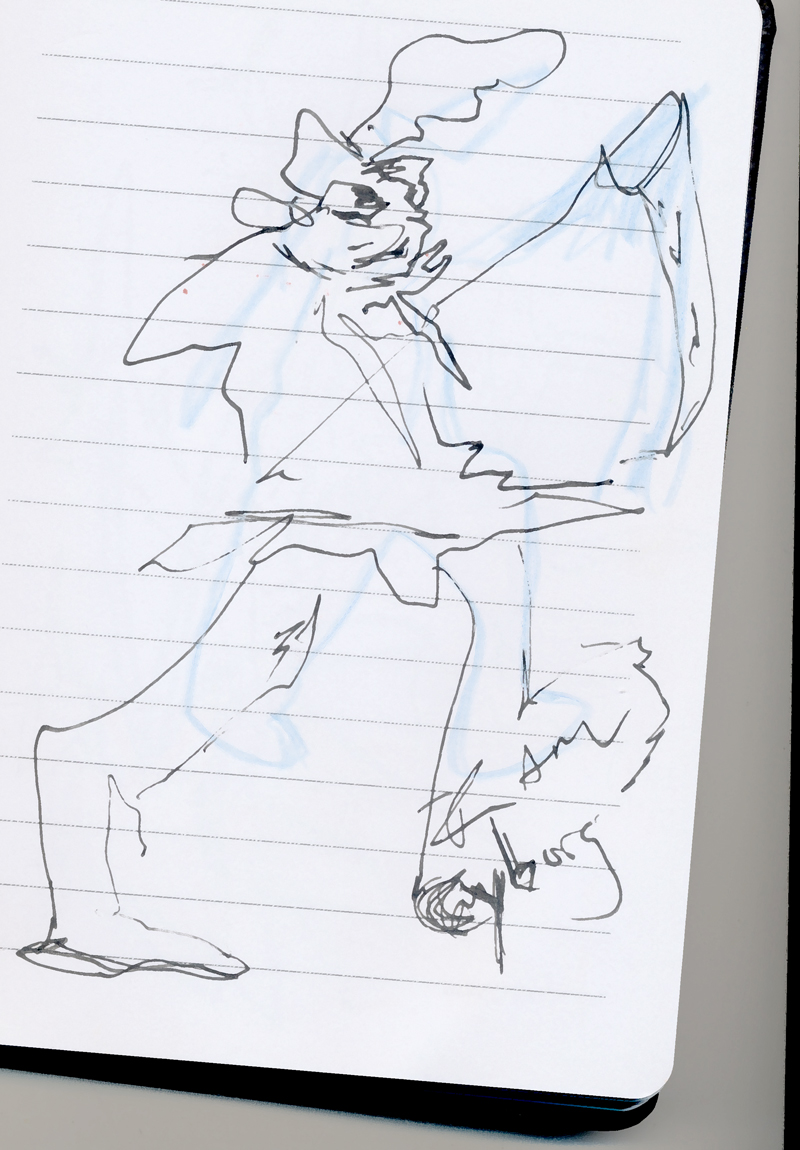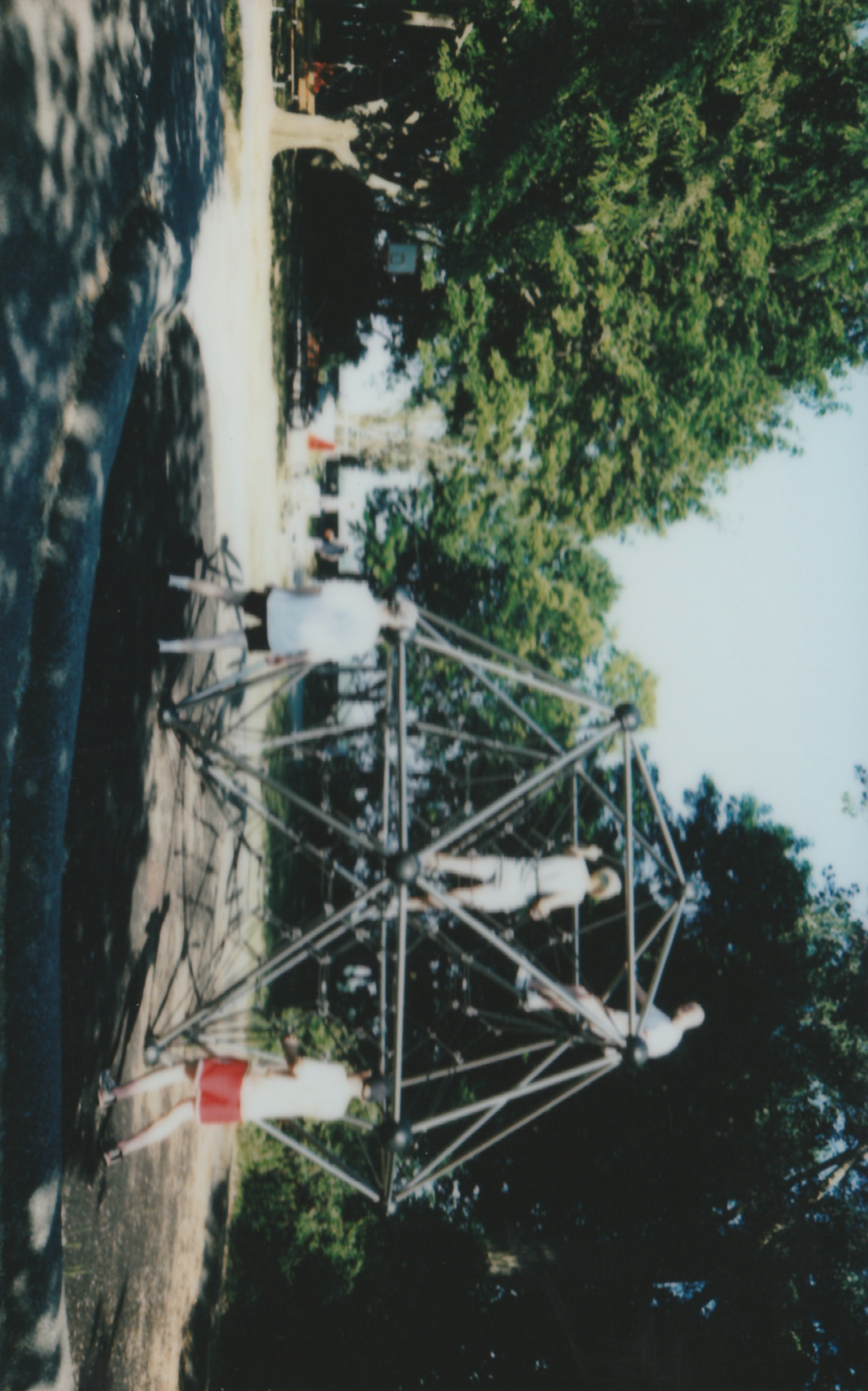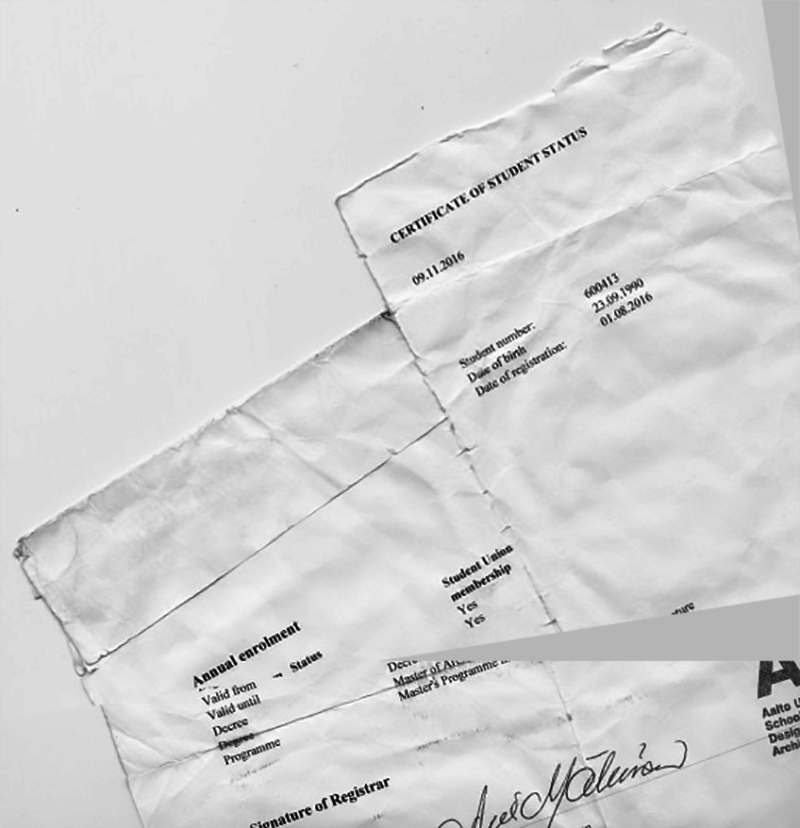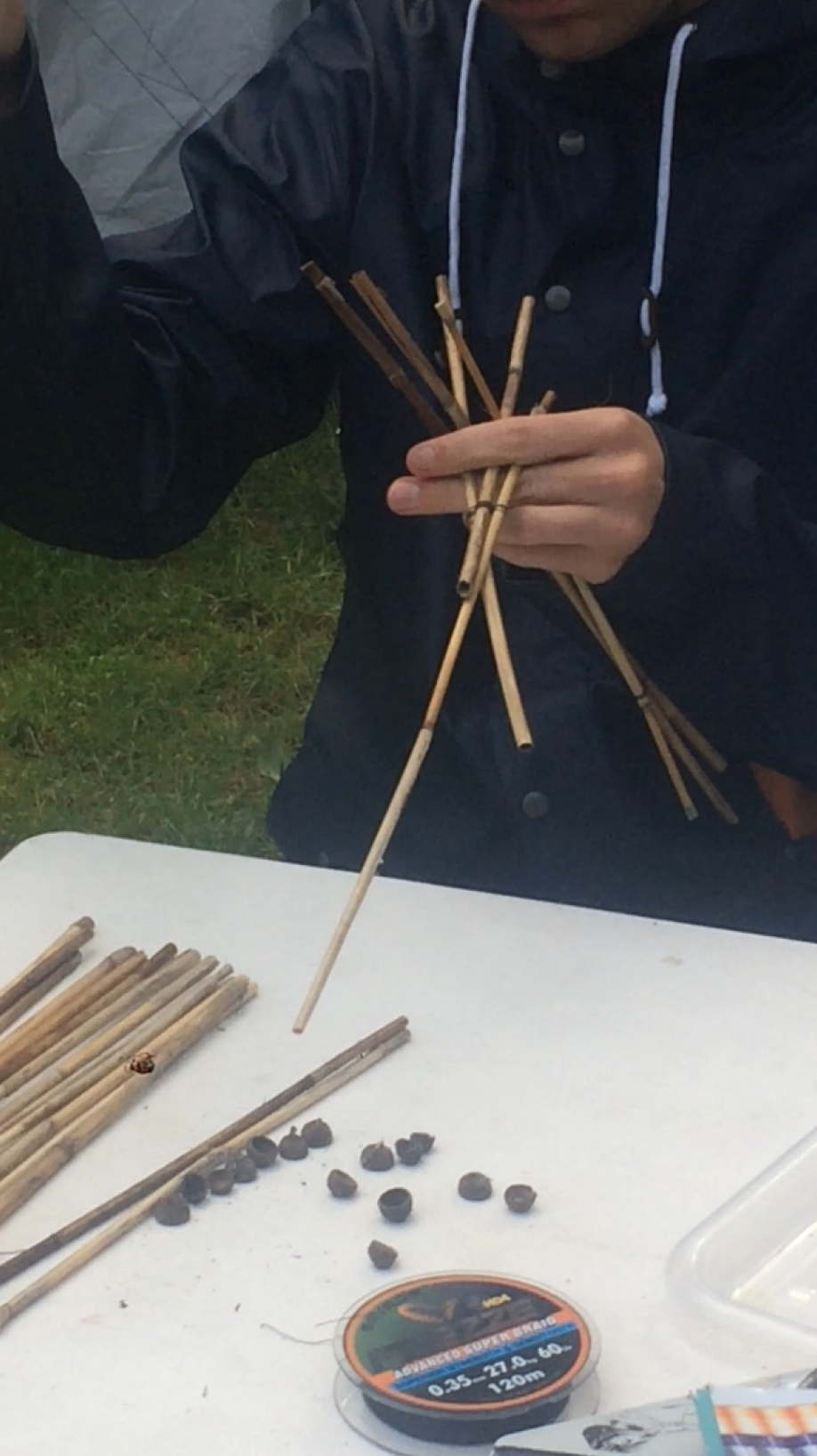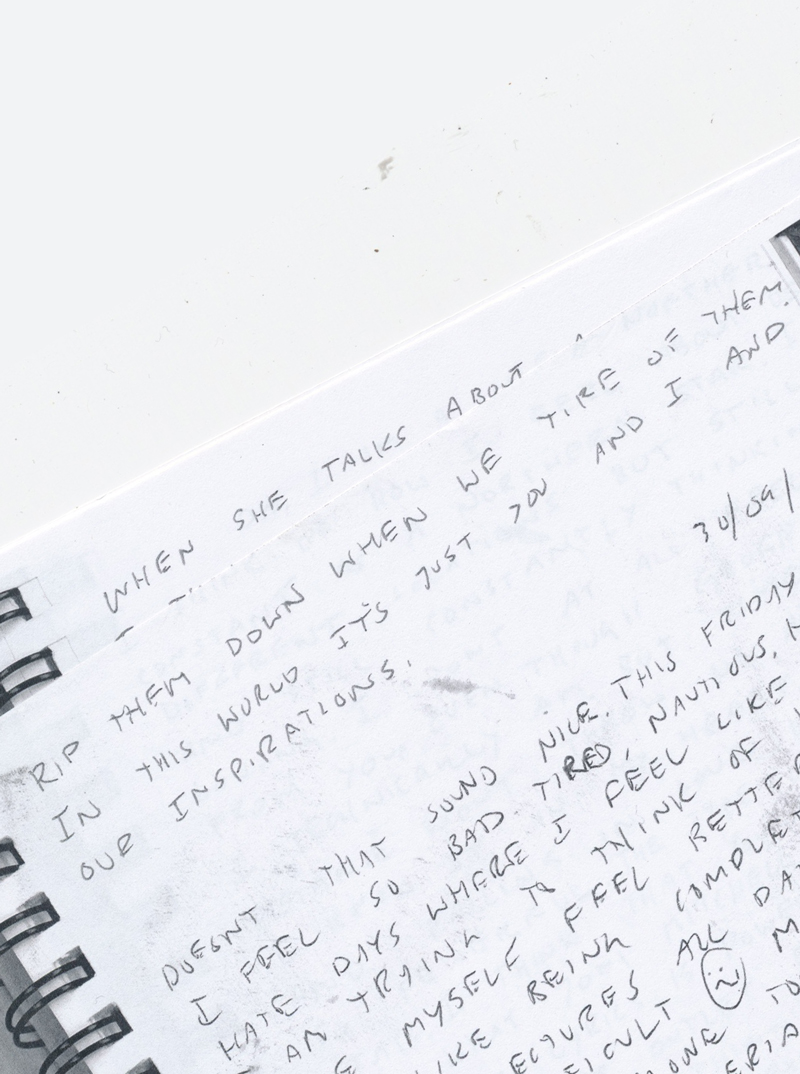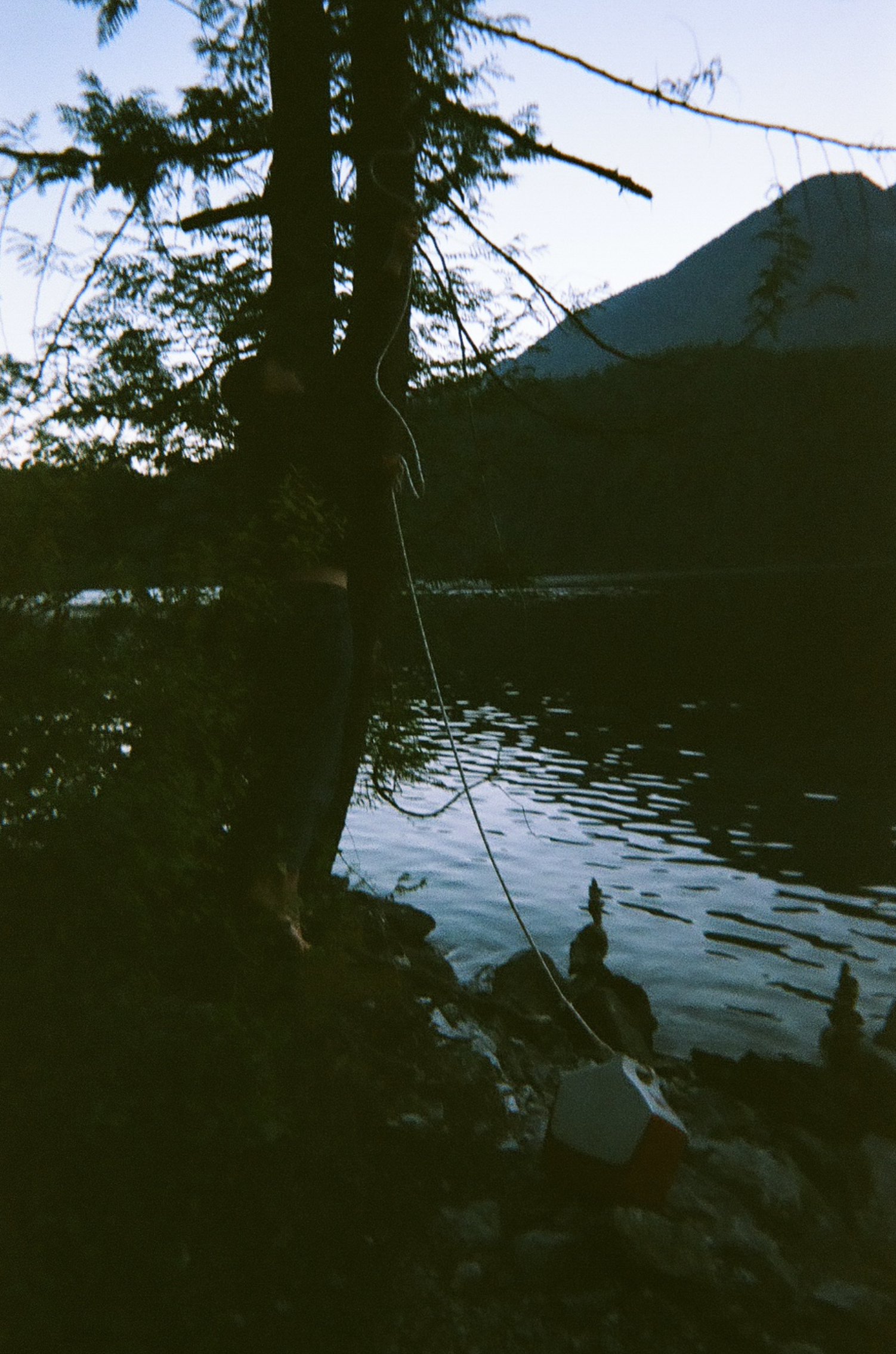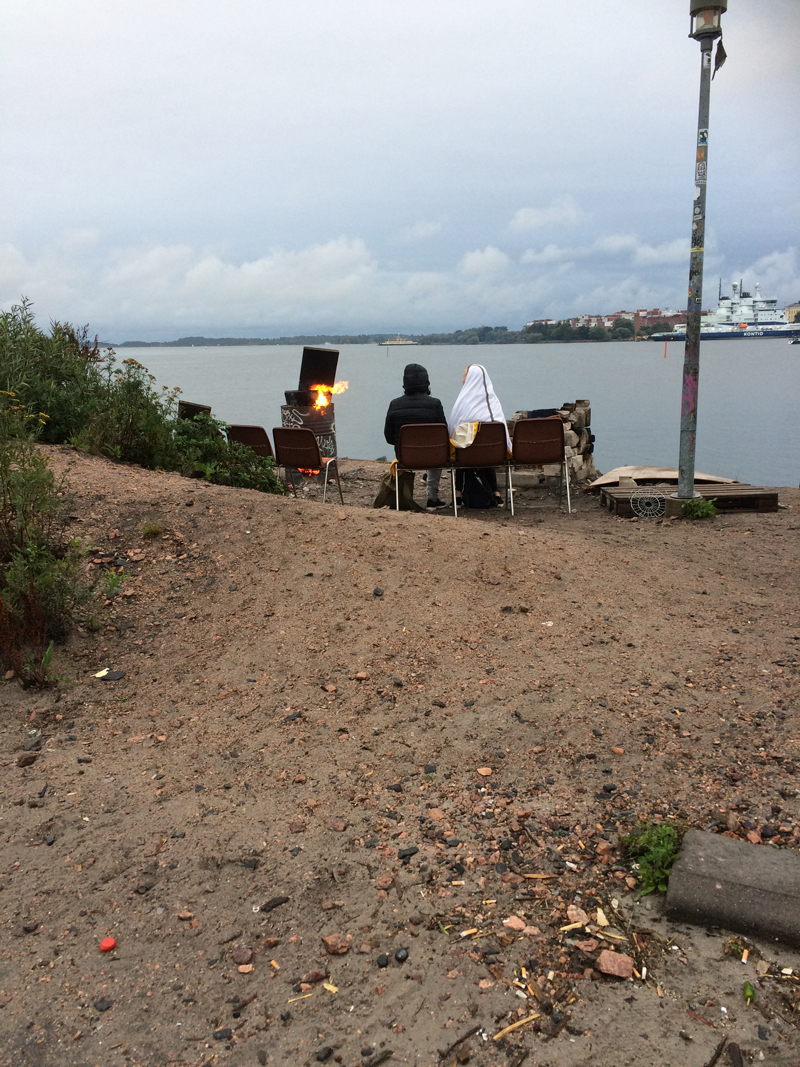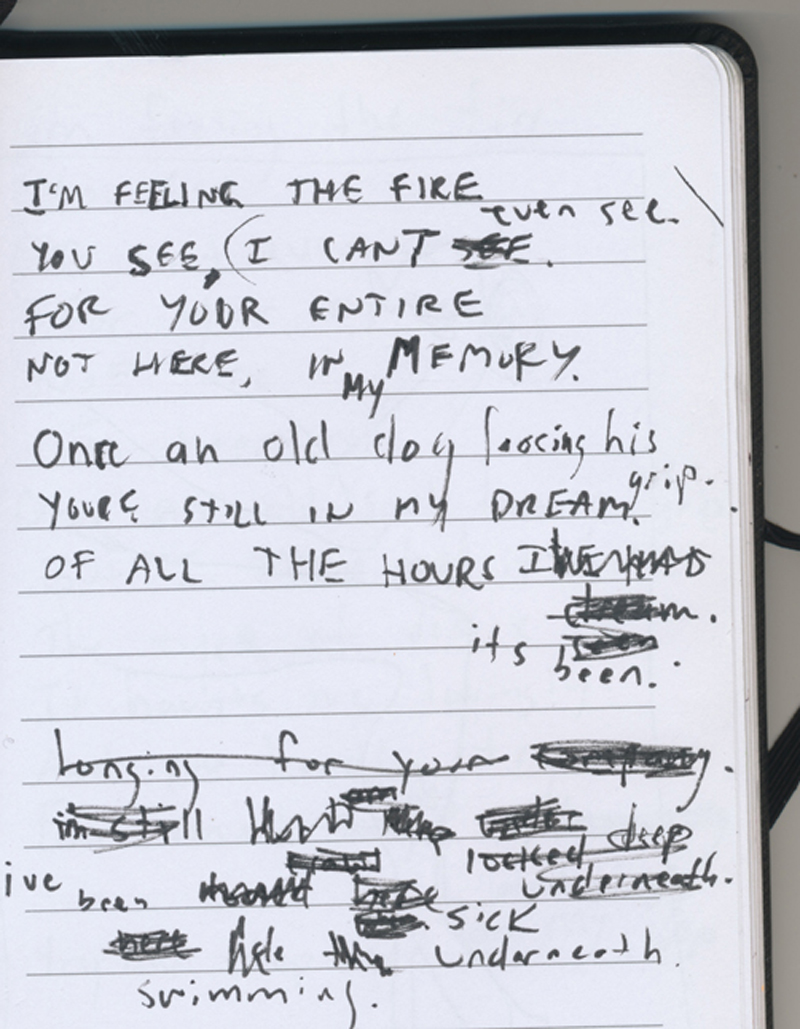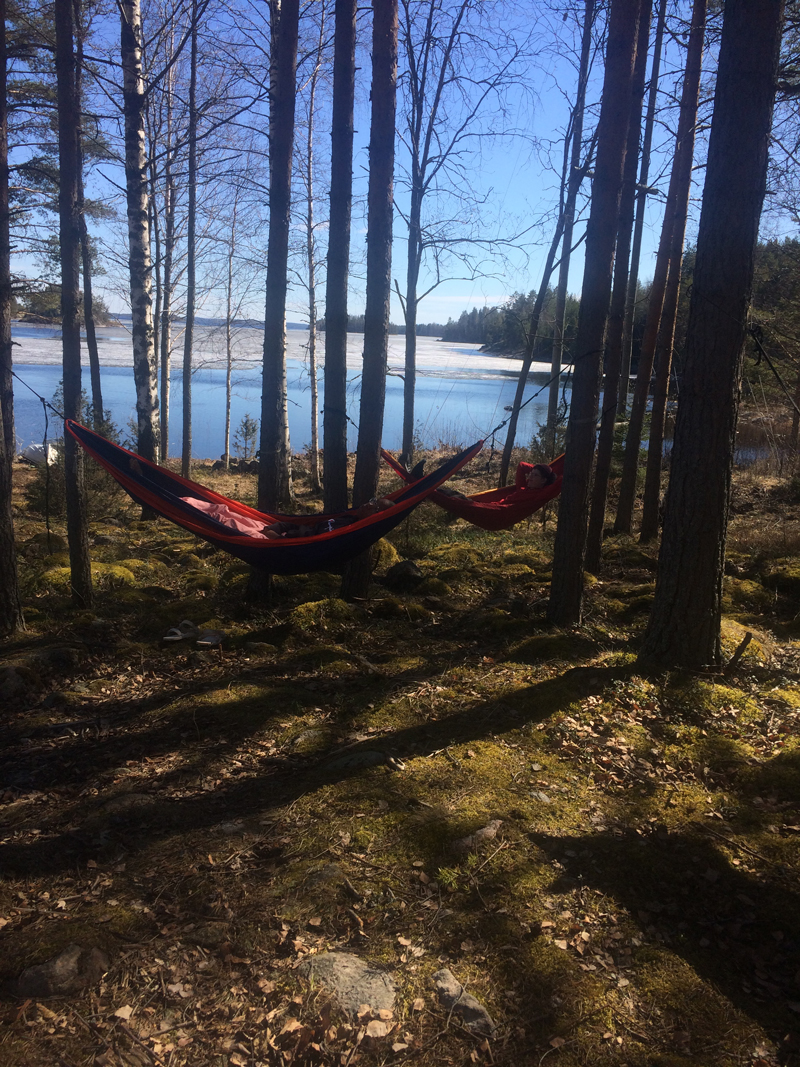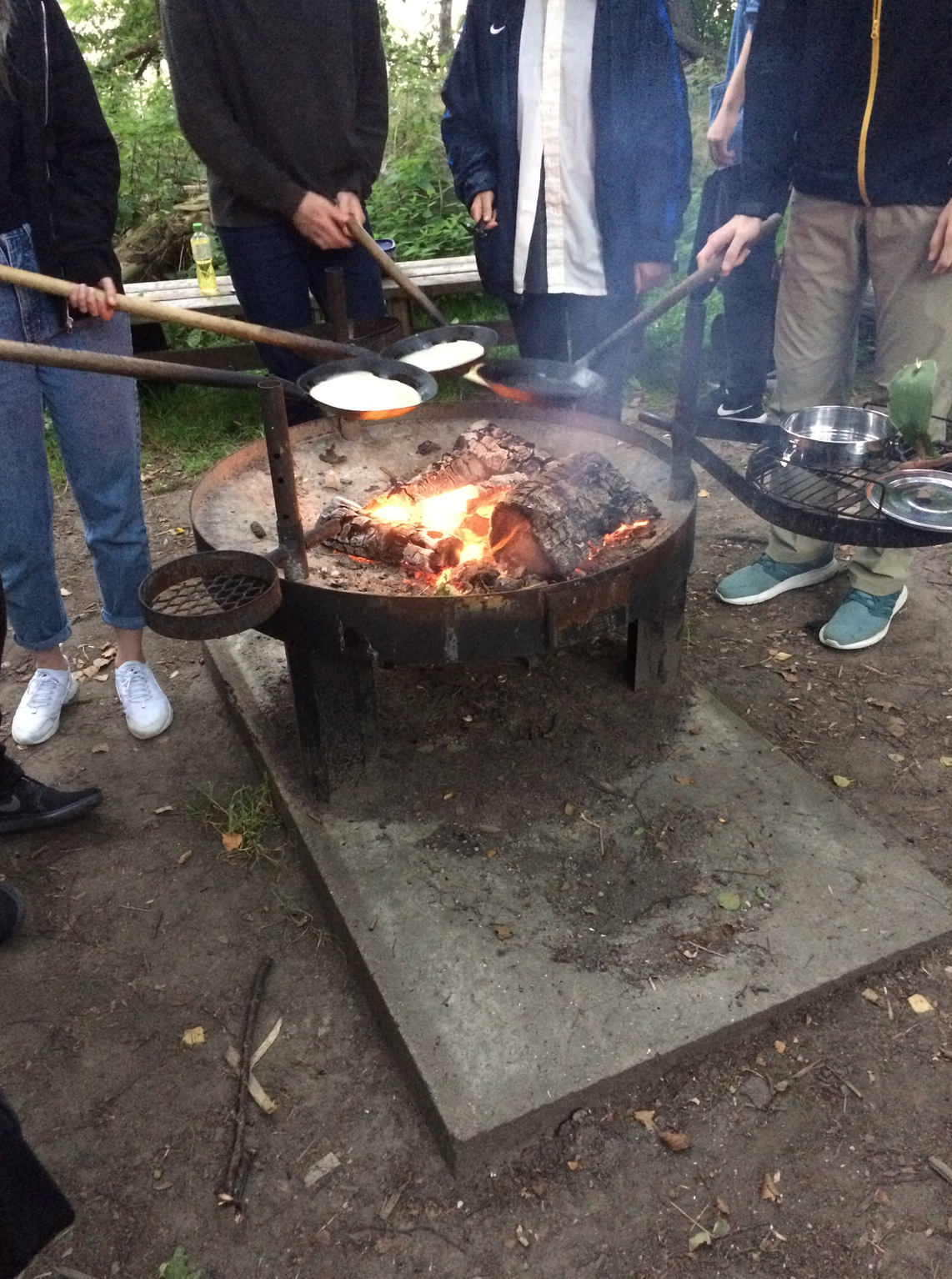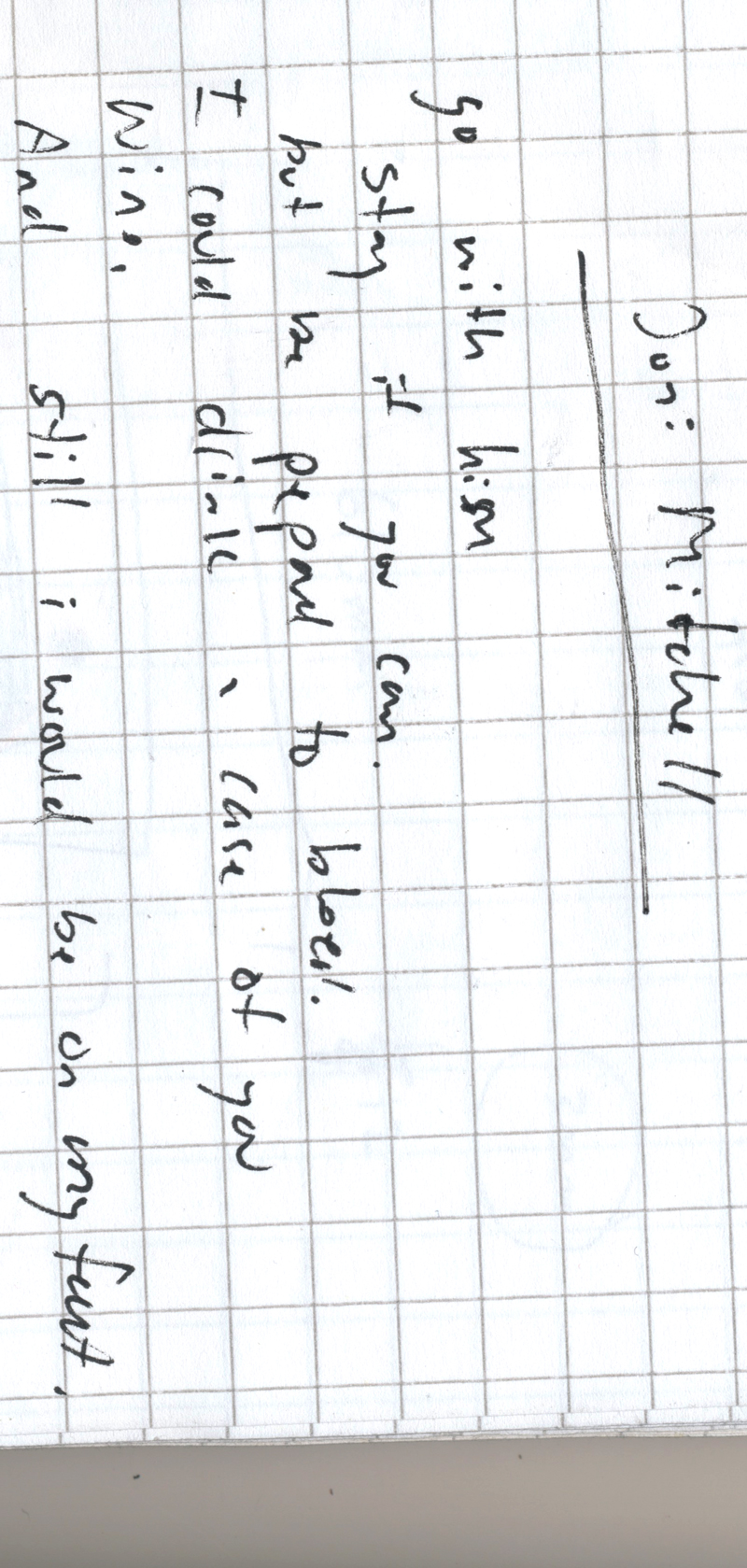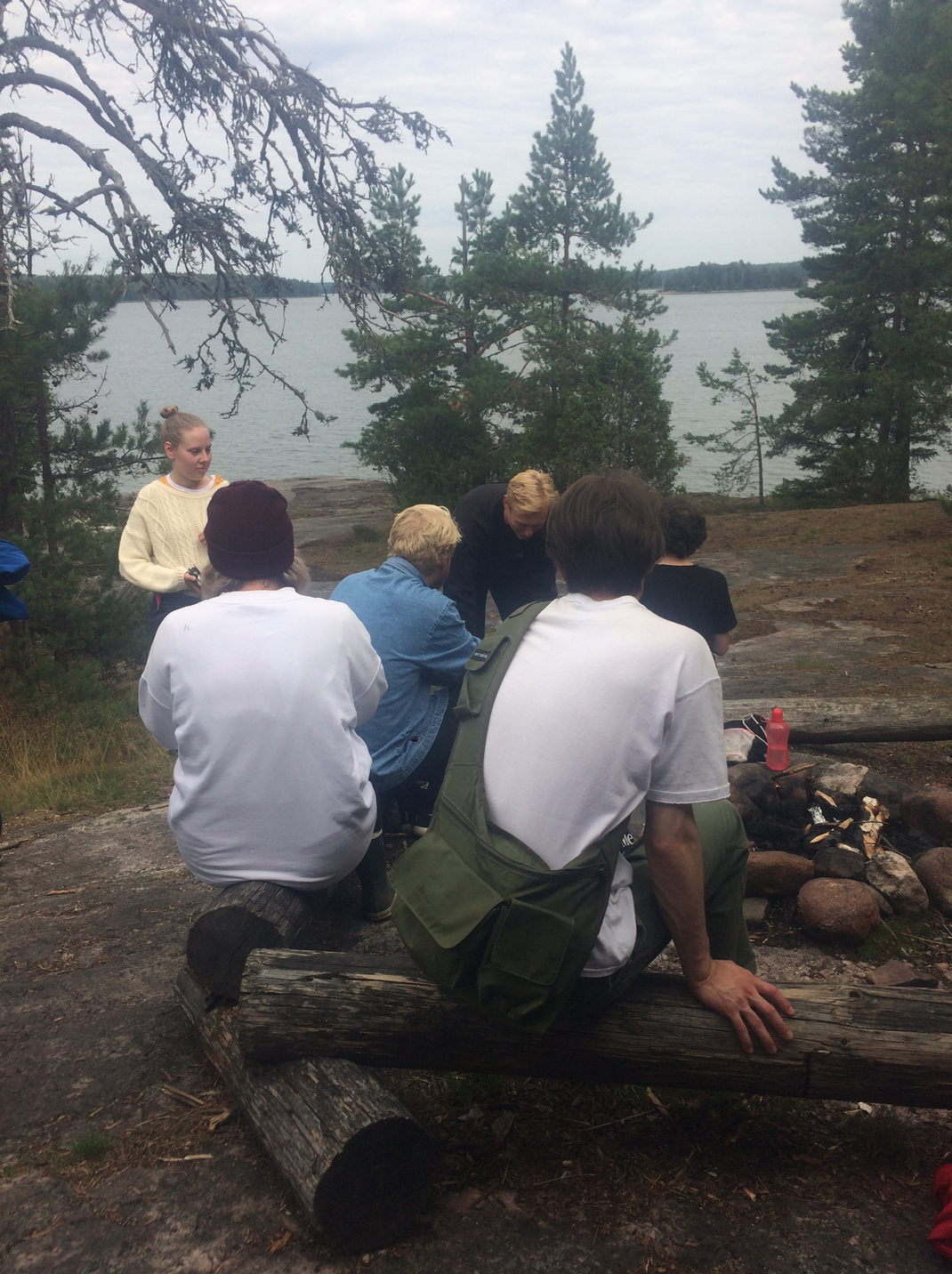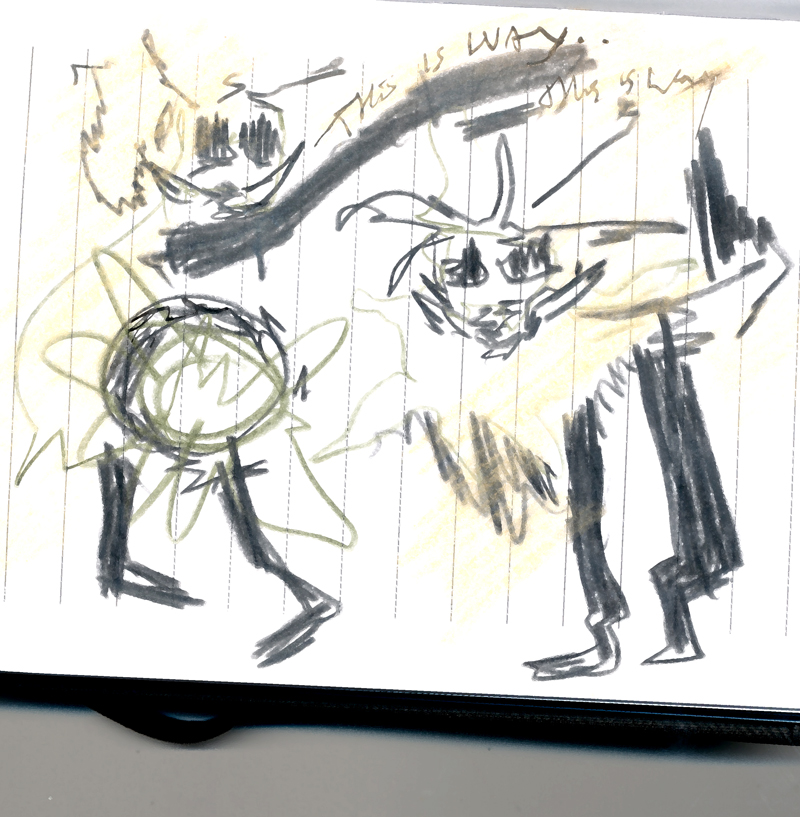
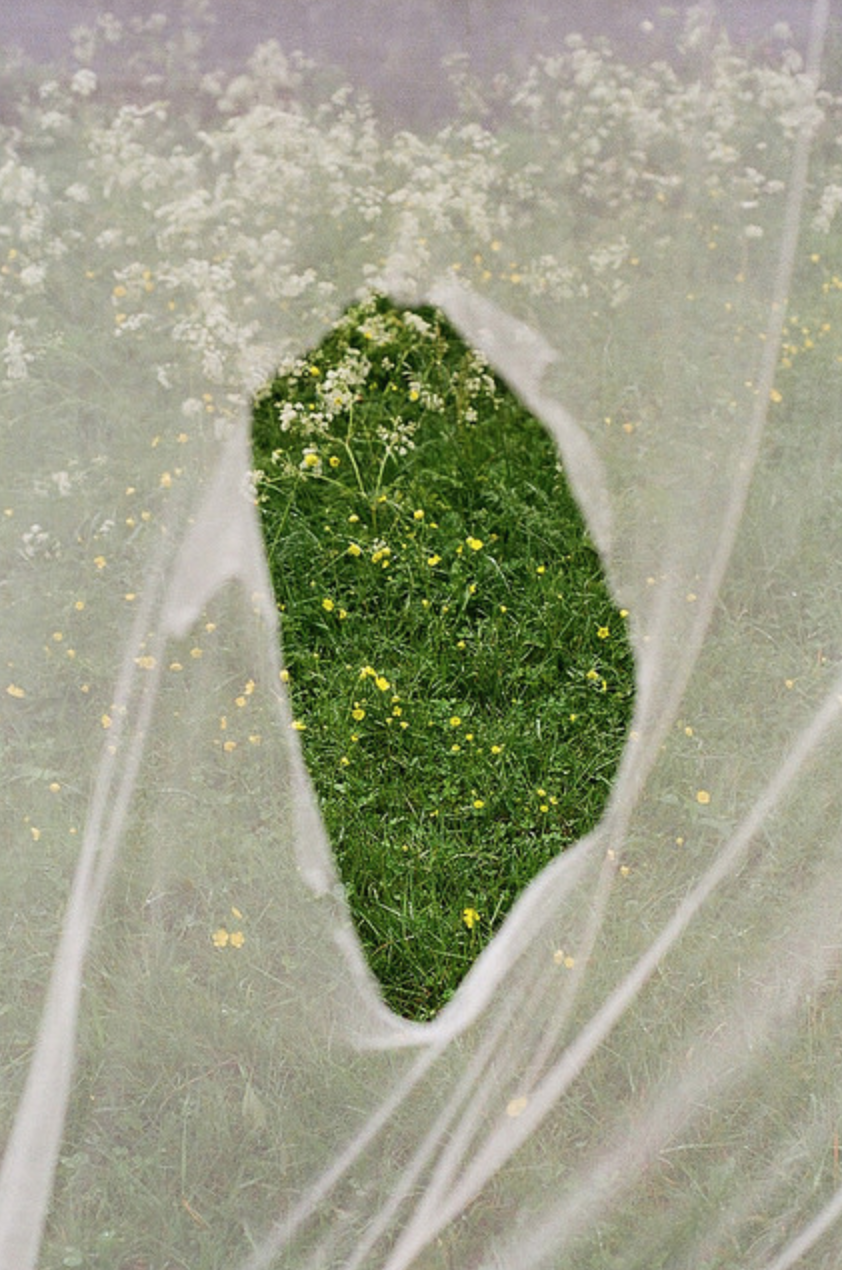

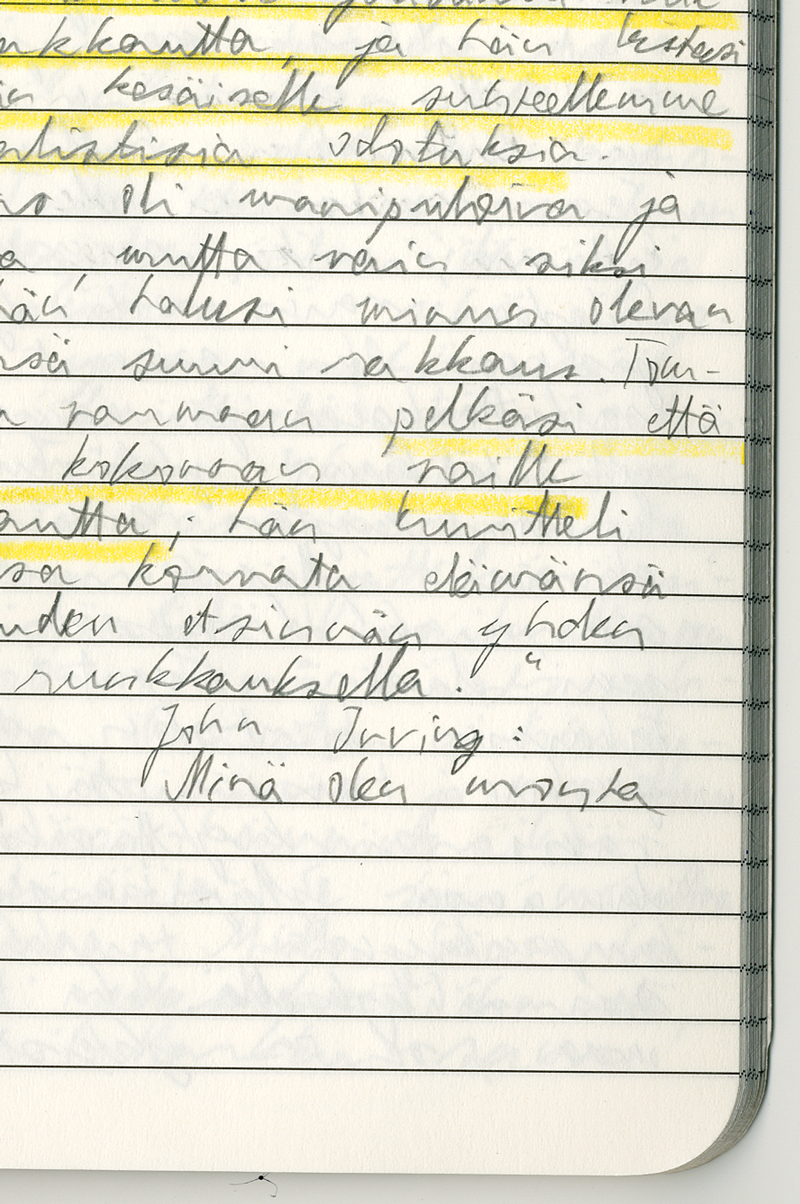
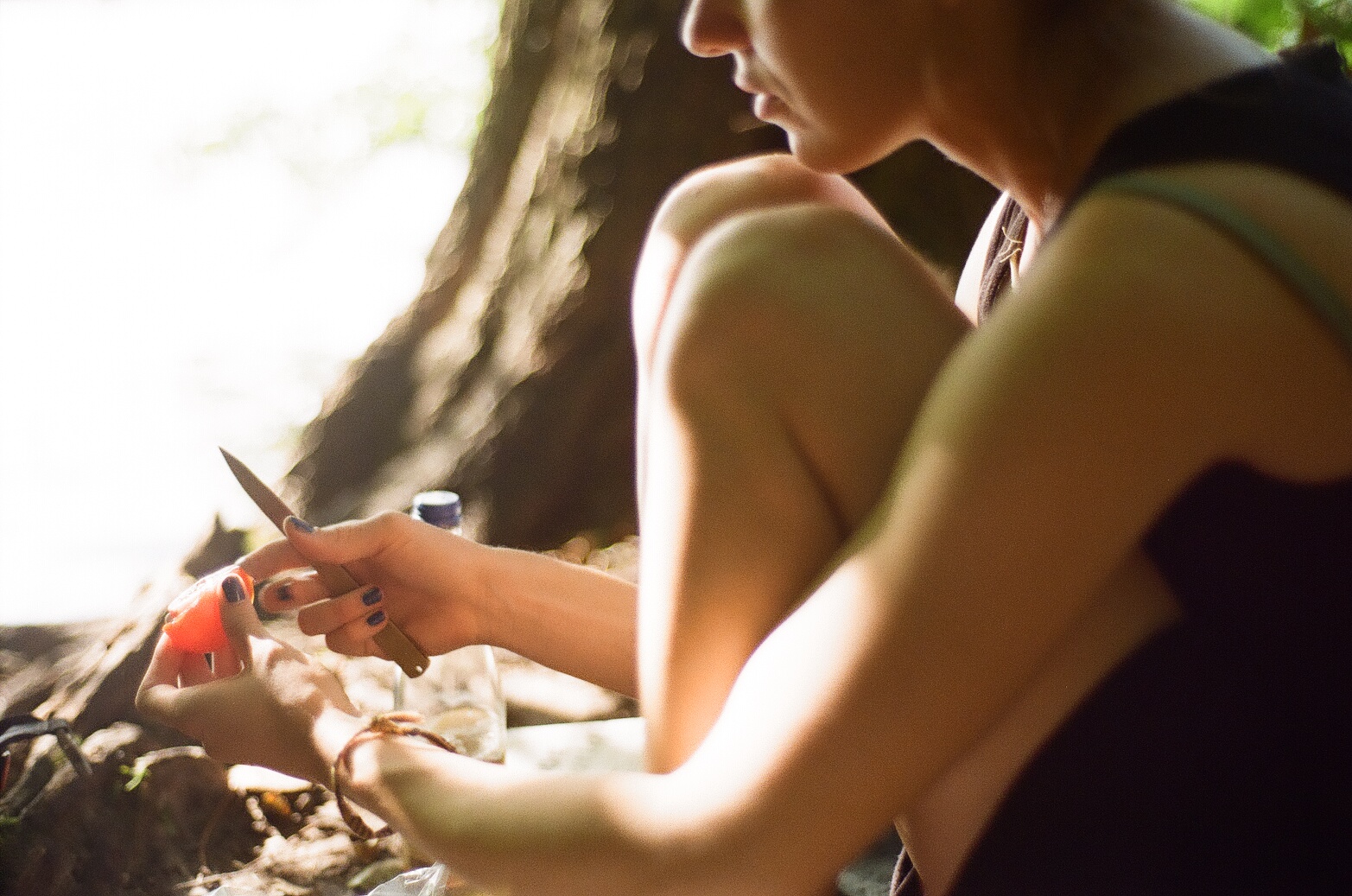
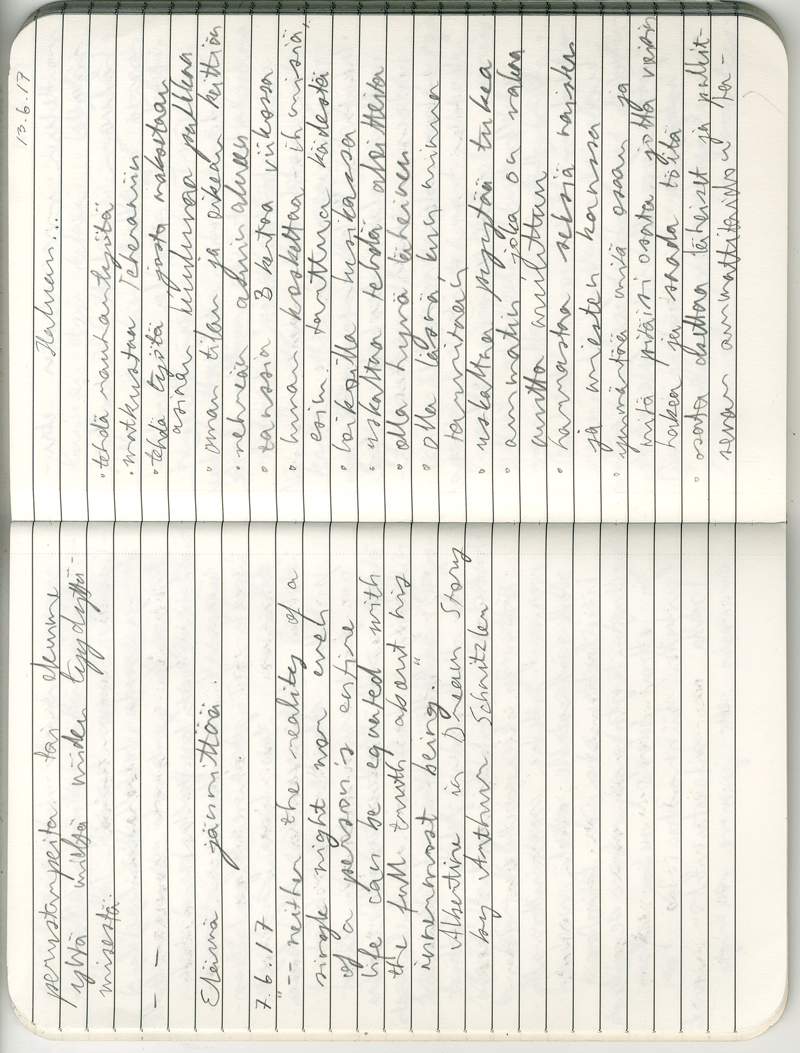
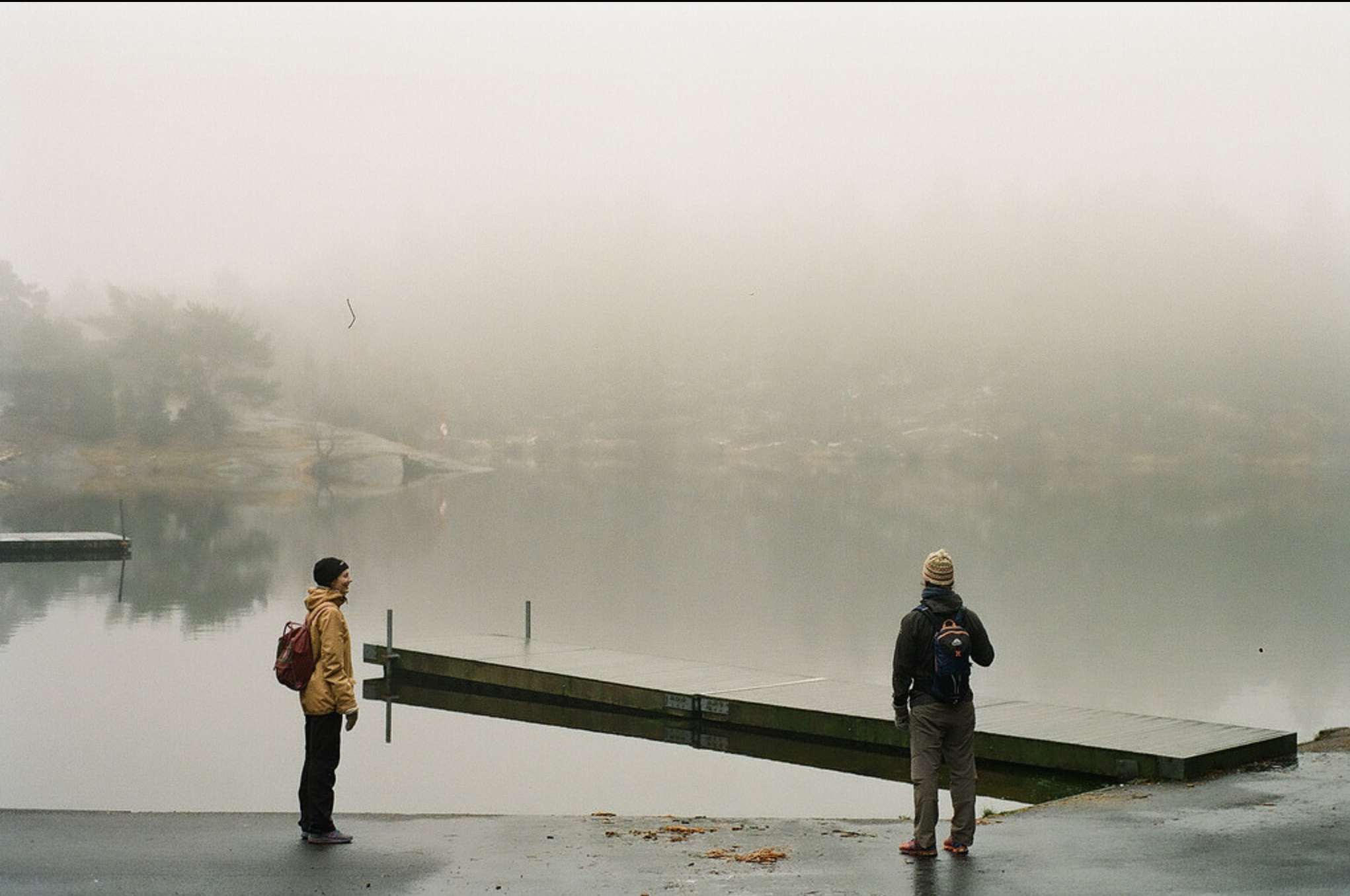
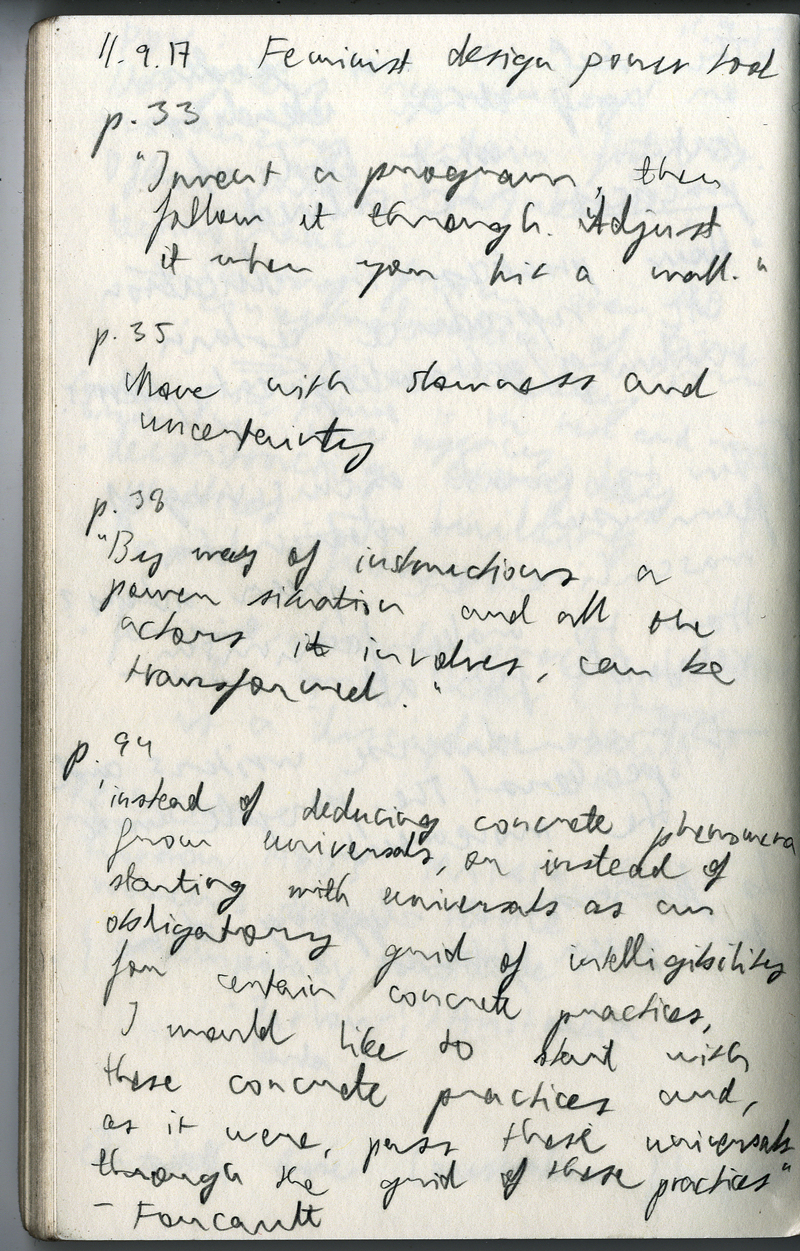

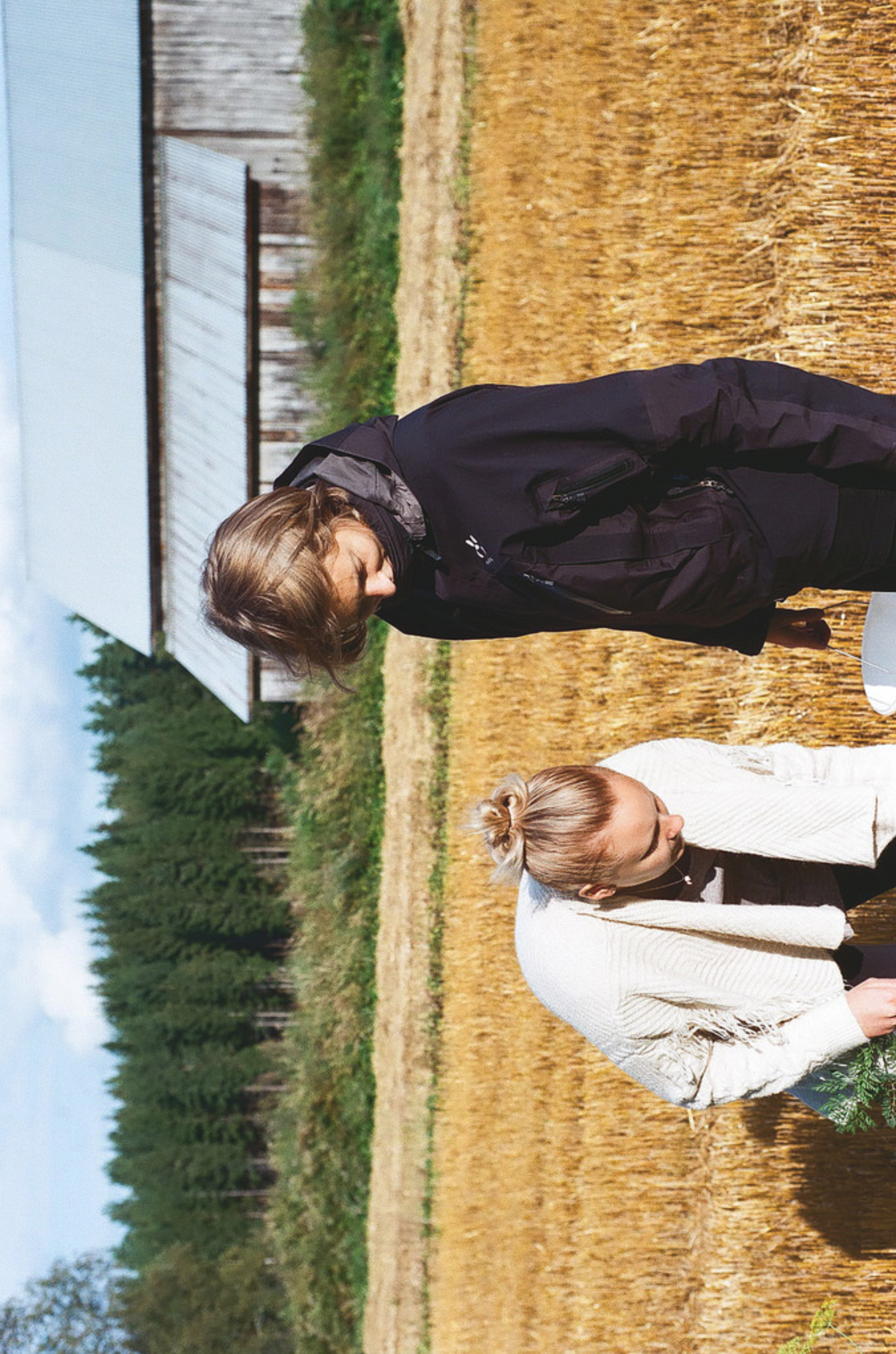
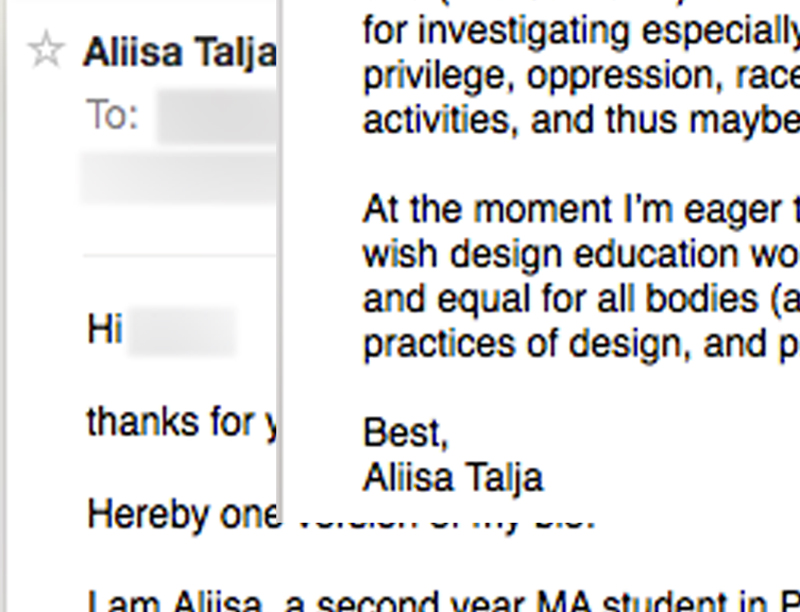
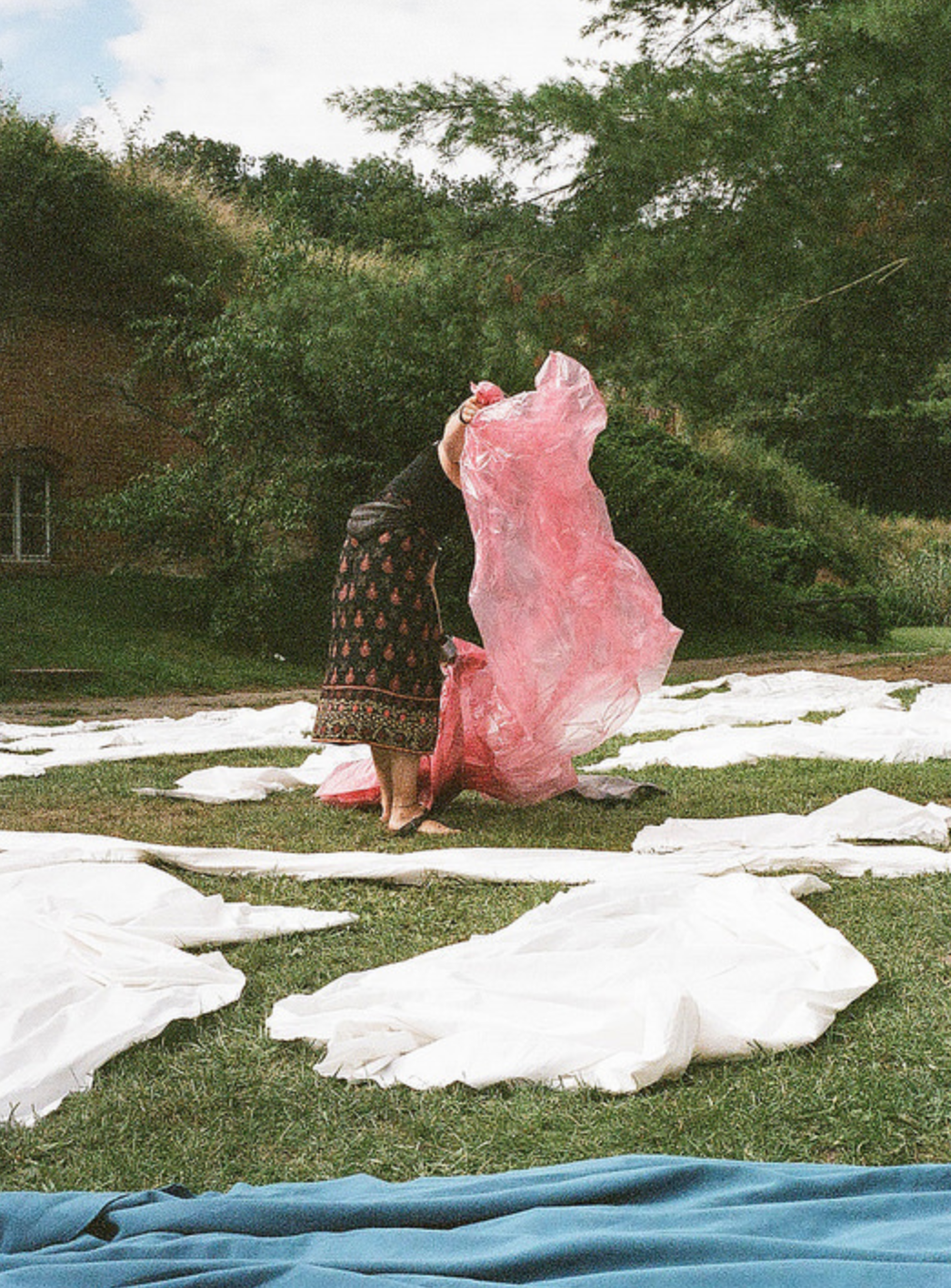

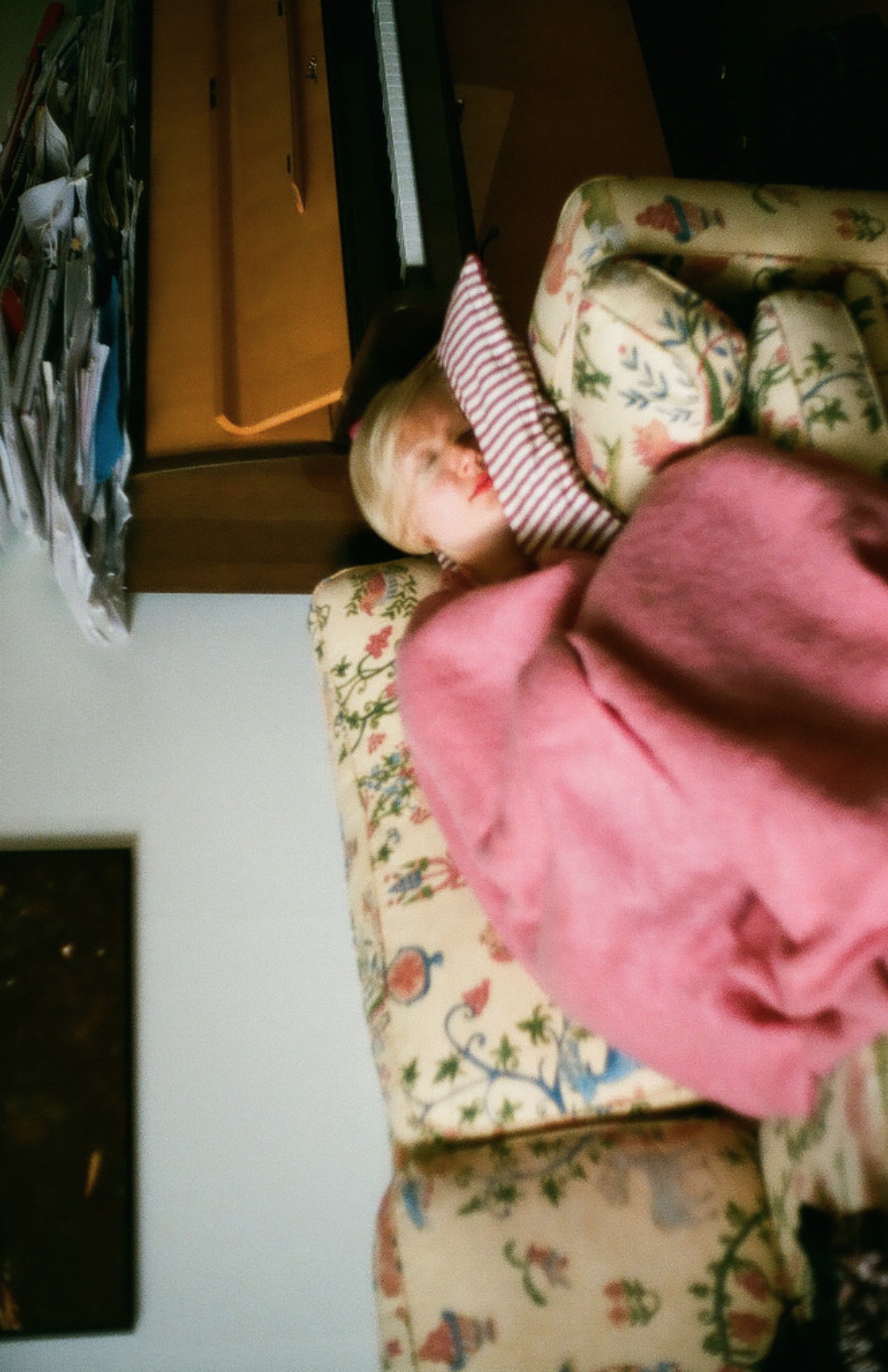

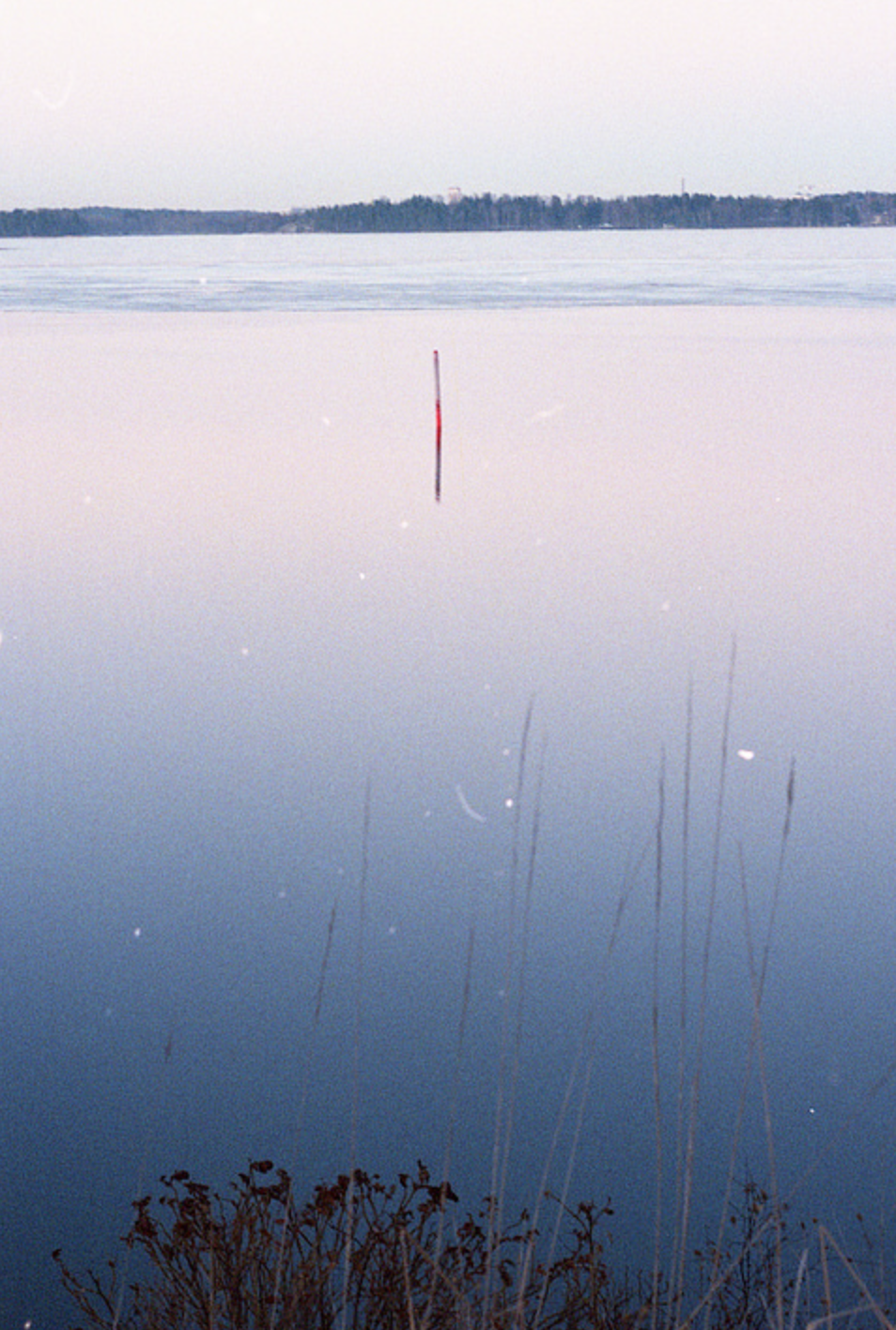
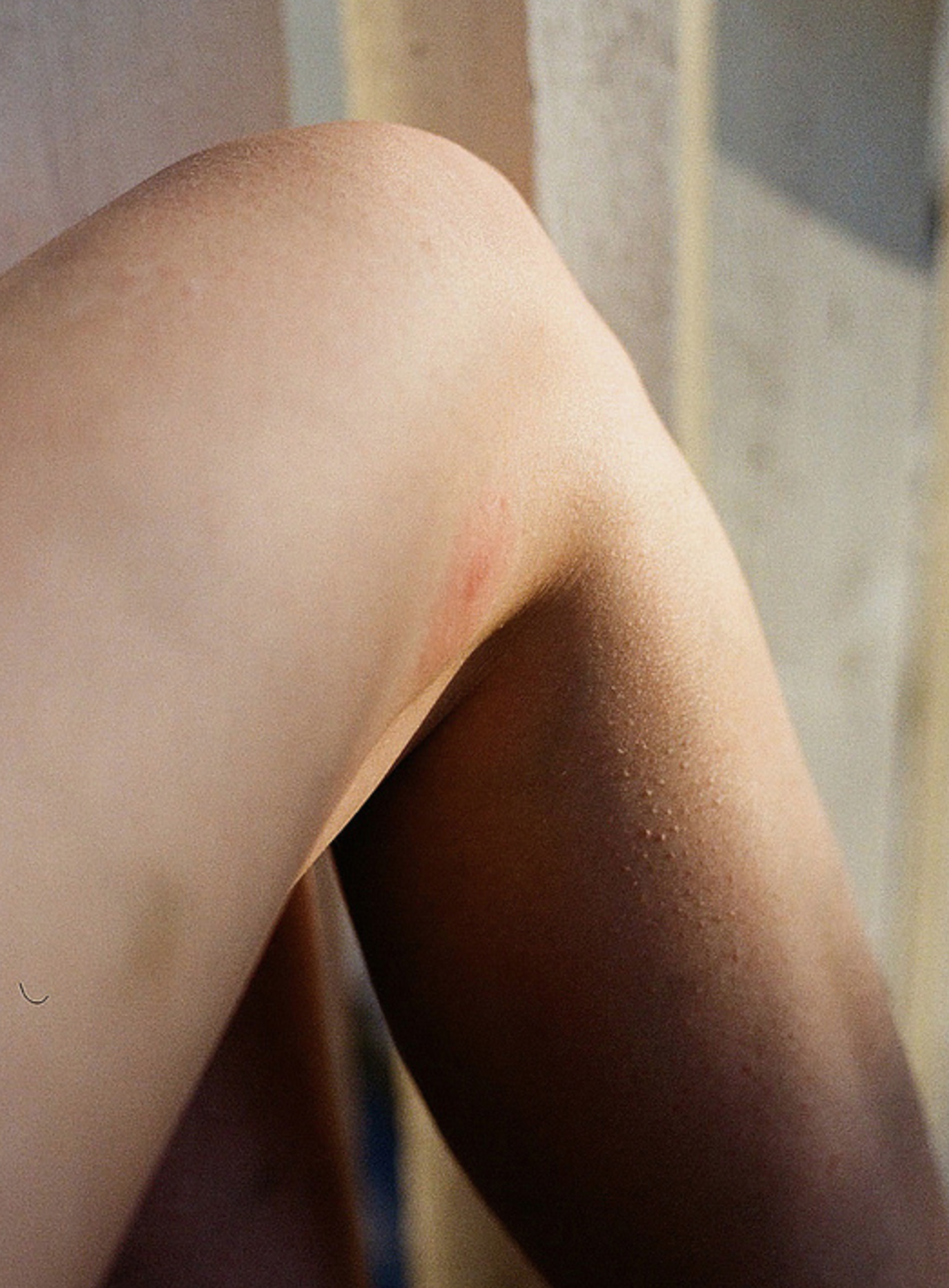
8.10.
Today I though about producing and consuming. By producing I mean generating something out of nothing: taking an input from the world and using my body to make something out of it. By consuming I mean the way our bodies consume the world, what is needed for life.
The modern world, as it is, doesn’t allow me to be self-sufficient in this way. I have trained myself for a profession and life that produce what my body cannot consume. These forms of production that I’ve been practicing during the past weeks are the only form of production that I know. But the only products of that production offer my body no livelihood. And thus I’m completely dependent on a measurable material medium, money. In parallel with being conditioned to believe that money equals livelihood, I’ve grown to believe it to be the measure of my independence, the value of my work, and a passport for the right to consume (live). And this is what causes me distress: unconsciously I believe that if I don’t produce for money, I don’t have independence, my work doesn’t have value, and I’m not providing my consumption. But all of this is only in relation to money, not in relation to the world and life!
Money is not an absolute equivalent to livelihood. It is only so in the current order of things. If I only could produce what my body consumes, I would. And so I would be free of material compensation determining the value of my work, my independence and my right to live. But I can’t. So I’m in a trap set up by this society. I’m in a forced marriage with money, and I have no other option than to maintain my dependency on money, to get livelihood. But I can still try and keep myself from not valuing my agency, action, and life in relation to money. I can value them as such!
- -
7.10.
This week I’ve been thinking about certain touches and certain hugs that have gotten stuck on my mind. They are recent touches that have evoked strong emotion in me. It might have been a friend or an acquaintance who has hugged me properly, or just wrapped their arm around my waist for a short while. My body has reacted to those moments so strongly, to those arms wrapping around my ribs and really just surrounding my whole torso. I’ve felt ticklish and euphoric afterwards, and I’ve kept thinking about those touches. Today I thought about this phenomenon in relation to the amount of physical proximity in my life. I wonder, if it’s because there has been so little touching and being close to someone and practically no sex for such a long time in my life that my body has started to react to touch very strongly. I feel like I’m just craving for being close to someone, and those little moments are small glimpses of something that I need in much larger amounts.
18.7.
Silloin kohtaa jonkun, josta tulee merkittävä, kun sitä vähiten odottaa, sanotaan. Minä olen odottanut, ja pelännyt, että odotukseni estää minua kohtaamasta. Merkittävän suhteen syntyminen edellyttää että antaa yhteisen ajan osoittaa, millainen toinen ihminen on odottamatta mitään ja yrittämättä olla itse jotakin tiettyä. Silloin rakentaa hiljalleen kuvaa toisesta ihmisestä mielessään, kyselee, kuuntelee ja kertoo odottamatta tuloksia. Siten tutustuu ihmiseen niin että saattakin ihastua. Minulle on käynyt näin monta kertaa, mutten koskaa ole arvostanut tätä ihastusta. Mutta tällä tavalla olen saanut ympärilleni ihmisiä, joiden läsnäolo on jollain tavalla merkittävää. Nämä ihmiset ovat erilaisia kuin minä, joudun ponnistelemaan ymmärtääkseni heitä. He tuntuvat aidoilta ja ihanan epätäydellisiltä, minkä hyväksymisen opettelu tuntuu tärkeältä. He ovat kokonaisempia kuin ihastuttavista ihmisistä itse maalaamani kiiltokuvat, jotka asettuvat minun ja heidän väliinsä kalvoiksi ja saavat epätäydellisyydet näyttäytymään pettymyksinä.
Minua kiehtoo tämä hidas, tutustumiseen perustuva ihastuminen. Sen syntyminen kestää kauan ja se tuntuu perustuvan toisen kohtaamiseen ja pyyteettömään uteliaisuuteen, toisin kuin esteettiset hullaantumiset. Tutkiessaan uteliaana, hitaasti, toista on itsekin avoimimmillaan ja vailla mitään. Ei halua toiselta mitään, eikä tarvitse antaa mitään, mikä ei tule ilman tietoisia ponnisteluita.
Kohtaaminen _______ kanssa ei tunnu tältä. Me emme ole auki. Me olemme ujoja ja kiinni. Odotan hänen olevan yhtä ihana kuin kuvittelen hänen olevan. Samanaikaisesti hän ihastuttaa ja ärsyttää minua. Ja yritän itse vastata tuohon kuvittelemaani ihanuuteen. Haluan saada sen ihanuuden avautumaan minulle ja jäykistyn ja sulkeudun kovaksi, yksiulotteiseksi kuoreksi virtaavan ja ristiriitaisen luonnollisen olemukseni sijaan yrittäessäni olla jotakin minulle tuntematonta. Yritän olla jotakin, joka avaisi tuon ihanuuden minulle. Mutta en tiedä mitä se on, joten en ole mitään. Olen kuori. Olen kiinni. Ja hänkin tuntuu olevan.
Tätähän minä tällä hetkellä tutkin. Tämän kanssa minä työstän rauhaa. Tämä on minun prosessini. Ja minä kun luulin, ettei minulla ole johtavaa lankaa. Tämä on tällä hetkellä hyvin tärkeää. Ja uskon, että oman itseni hahmottaminen tällä tavalla suhteessa muihin on koko loppuelämäni kannalta merkittävää. Uskon, että tämä ohjaa minua jossakin vaiheessa uskaltautumaan läheisempään suhteeseen jonkun kanssa. Toisaalta tämä opettaa minulle itsestäni, sillä kaikki mielikuvat ja tulkinnat, joita saan ja luon muista ovat peilautumia itsestäni. Irving kirjoitti: “Se, mitä himoitsemme muovaa meidät.” Se, mitä tavoittelen tekee minut kullakin hetkellä sellaiseksi kuin olen.
15.7.
Miksi teen, mitä teen? Kai tavoittaakseni tuon edellämainitun täyttymisen, yhteenliittymisen ja paljastuvien merkitysten kokemuksen. Kaikki tekeminen, jolla sen saavutan on siis merkityksellistä, eikä minun näin ollen tarvitse sitä enää kyseenalaistaa. Itselleni tehtävän antaminen on merkityksellistä. Mitä enempääkään voin? Miksi se, että joku muu antaa minulle tehtävän olisi merkityksellisempää? Antaessani itselleni tehtävän voin tutkia sitä, mitä haluan tutkia. Sitä, mitä tutkiessani todennäköisemmin saavutan kokemuksen tekemisen merkityksellisyydestä. Tämä kokemus taas syntyy helpommin kerätessäni tietoa ja punoessani ymmärrystä asioista, jotka linkittyvät ennalta tuntemiini asioihin.
Today I though about producing and consuming. By producing I mean generating something out of nothing: taking an input from the world and using my body to make something out of it. By consuming I mean the way our bodies consume the world, what is needed for life.
The modern world, as it is, doesn’t allow me to be self-sufficient in this way. I have trained myself for a profession and life that produce what my body cannot consume. These forms of production that I’ve been practicing during the past weeks are the only form of production that I know. But the only products of that production offer my body no livelihood. And thus I’m completely dependent on a measurable material medium, money. In parallel with being conditioned to believe that money equals livelihood, I’ve grown to believe it to be the measure of my independence, the value of my work, and a passport for the right to consume (live). And this is what causes me distress: unconsciously I believe that if I don’t produce for money, I don’t have independence, my work doesn’t have value, and I’m not providing my consumption. But all of this is only in relation to money, not in relation to the world and life!
Money is not an absolute equivalent to livelihood. It is only so in the current order of things. If I only could produce what my body consumes, I would. And so I would be free of material compensation determining the value of my work, my independence and my right to live. But I can’t. So I’m in a trap set up by this society. I’m in a forced marriage with money, and I have no other option than to maintain my dependency on money, to get livelihood. But I can still try and keep myself from not valuing my agency, action, and life in relation to money. I can value them as such!
- -
7.10.
This week I’ve been thinking about certain touches and certain hugs that have gotten stuck on my mind. They are recent touches that have evoked strong emotion in me. It might have been a friend or an acquaintance who has hugged me properly, or just wrapped their arm around my waist for a short while. My body has reacted to those moments so strongly, to those arms wrapping around my ribs and really just surrounding my whole torso. I’ve felt ticklish and euphoric afterwards, and I’ve kept thinking about those touches. Today I thought about this phenomenon in relation to the amount of physical proximity in my life. I wonder, if it’s because there has been so little touching and being close to someone and practically no sex for such a long time in my life that my body has started to react to touch very strongly. I feel like I’m just craving for being close to someone, and those little moments are small glimpses of something that I need in much larger amounts.
18.7.
Silloin kohtaa jonkun, josta tulee merkittävä, kun sitä vähiten odottaa, sanotaan. Minä olen odottanut, ja pelännyt, että odotukseni estää minua kohtaamasta. Merkittävän suhteen syntyminen edellyttää että antaa yhteisen ajan osoittaa, millainen toinen ihminen on odottamatta mitään ja yrittämättä olla itse jotakin tiettyä. Silloin rakentaa hiljalleen kuvaa toisesta ihmisestä mielessään, kyselee, kuuntelee ja kertoo odottamatta tuloksia. Siten tutustuu ihmiseen niin että saattakin ihastua. Minulle on käynyt näin monta kertaa, mutten koskaa ole arvostanut tätä ihastusta. Mutta tällä tavalla olen saanut ympärilleni ihmisiä, joiden läsnäolo on jollain tavalla merkittävää. Nämä ihmiset ovat erilaisia kuin minä, joudun ponnistelemaan ymmärtääkseni heitä. He tuntuvat aidoilta ja ihanan epätäydellisiltä, minkä hyväksymisen opettelu tuntuu tärkeältä. He ovat kokonaisempia kuin ihastuttavista ihmisistä itse maalaamani kiiltokuvat, jotka asettuvat minun ja heidän väliinsä kalvoiksi ja saavat epätäydellisyydet näyttäytymään pettymyksinä.
Minua kiehtoo tämä hidas, tutustumiseen perustuva ihastuminen. Sen syntyminen kestää kauan ja se tuntuu perustuvan toisen kohtaamiseen ja pyyteettömään uteliaisuuteen, toisin kuin esteettiset hullaantumiset. Tutkiessaan uteliaana, hitaasti, toista on itsekin avoimimmillaan ja vailla mitään. Ei halua toiselta mitään, eikä tarvitse antaa mitään, mikä ei tule ilman tietoisia ponnisteluita.
Kohtaaminen _______ kanssa ei tunnu tältä. Me emme ole auki. Me olemme ujoja ja kiinni. Odotan hänen olevan yhtä ihana kuin kuvittelen hänen olevan. Samanaikaisesti hän ihastuttaa ja ärsyttää minua. Ja yritän itse vastata tuohon kuvittelemaani ihanuuteen. Haluan saada sen ihanuuden avautumaan minulle ja jäykistyn ja sulkeudun kovaksi, yksiulotteiseksi kuoreksi virtaavan ja ristiriitaisen luonnollisen olemukseni sijaan yrittäessäni olla jotakin minulle tuntematonta. Yritän olla jotakin, joka avaisi tuon ihanuuden minulle. Mutta en tiedä mitä se on, joten en ole mitään. Olen kuori. Olen kiinni. Ja hänkin tuntuu olevan.
Tätähän minä tällä hetkellä tutkin. Tämän kanssa minä työstän rauhaa. Tämä on minun prosessini. Ja minä kun luulin, ettei minulla ole johtavaa lankaa. Tämä on tällä hetkellä hyvin tärkeää. Ja uskon, että oman itseni hahmottaminen tällä tavalla suhteessa muihin on koko loppuelämäni kannalta merkittävää. Uskon, että tämä ohjaa minua jossakin vaiheessa uskaltautumaan läheisempään suhteeseen jonkun kanssa. Toisaalta tämä opettaa minulle itsestäni, sillä kaikki mielikuvat ja tulkinnat, joita saan ja luon muista ovat peilautumia itsestäni. Irving kirjoitti: “Se, mitä himoitsemme muovaa meidät.” Se, mitä tavoittelen tekee minut kullakin hetkellä sellaiseksi kuin olen.
15.7.
Miksi teen, mitä teen? Kai tavoittaakseni tuon edellämainitun täyttymisen, yhteenliittymisen ja paljastuvien merkitysten kokemuksen. Kaikki tekeminen, jolla sen saavutan on siis merkityksellistä, eikä minun näin ollen tarvitse sitä enää kyseenalaistaa. Itselleni tehtävän antaminen on merkityksellistä. Mitä enempääkään voin? Miksi se, että joku muu antaa minulle tehtävän olisi merkityksellisempää? Antaessani itselleni tehtävän voin tutkia sitä, mitä haluan tutkia. Sitä, mitä tutkiessani todennäköisemmin saavutan kokemuksen tekemisen merkityksellisyydestä. Tämä kokemus taas syntyy helpommin kerätessäni tietoa ja punoessani ymmärrystä asioista, jotka linkittyvät ennalta tuntemiini asioihin.
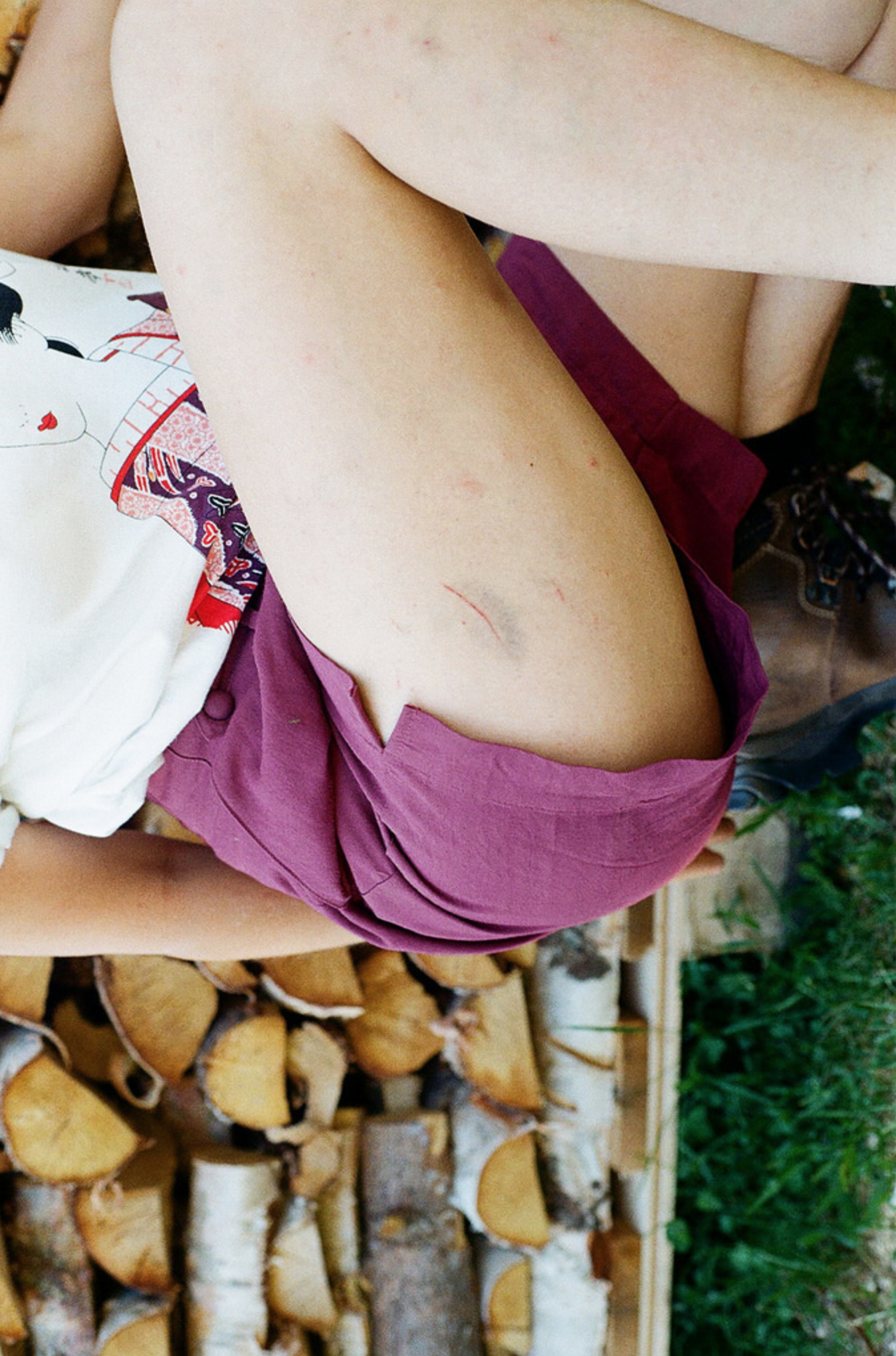

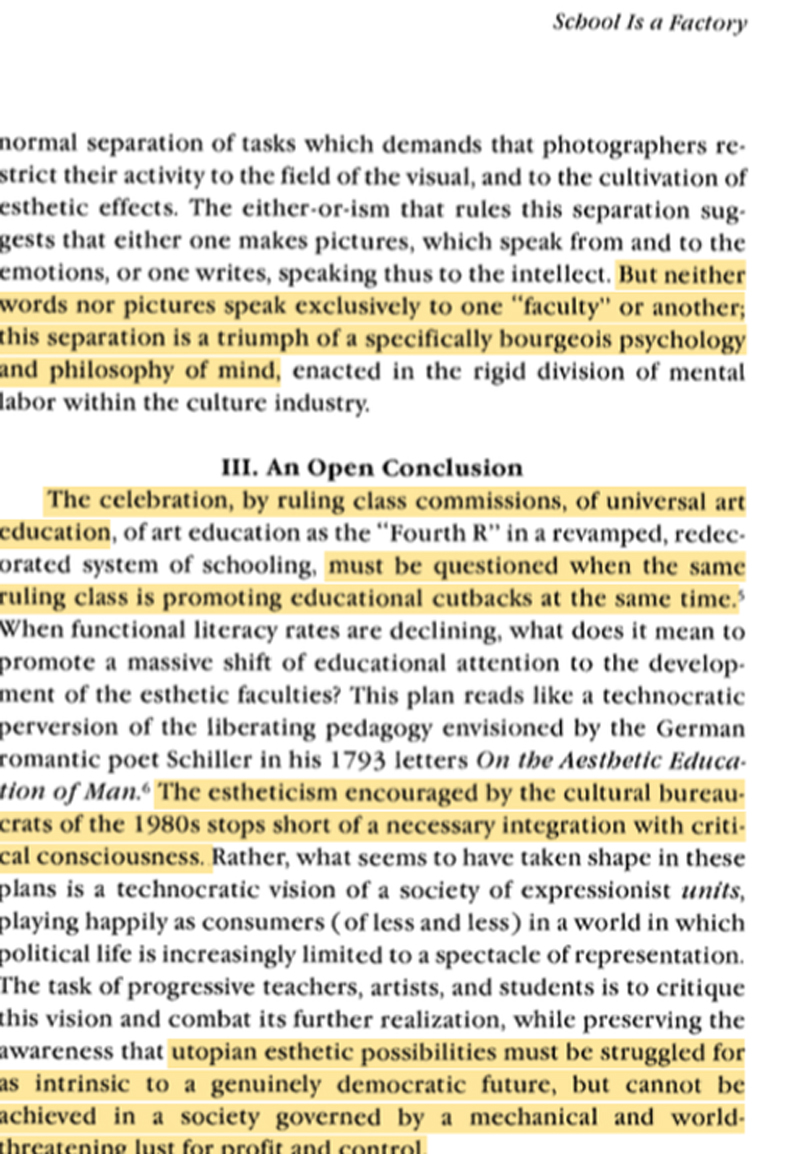
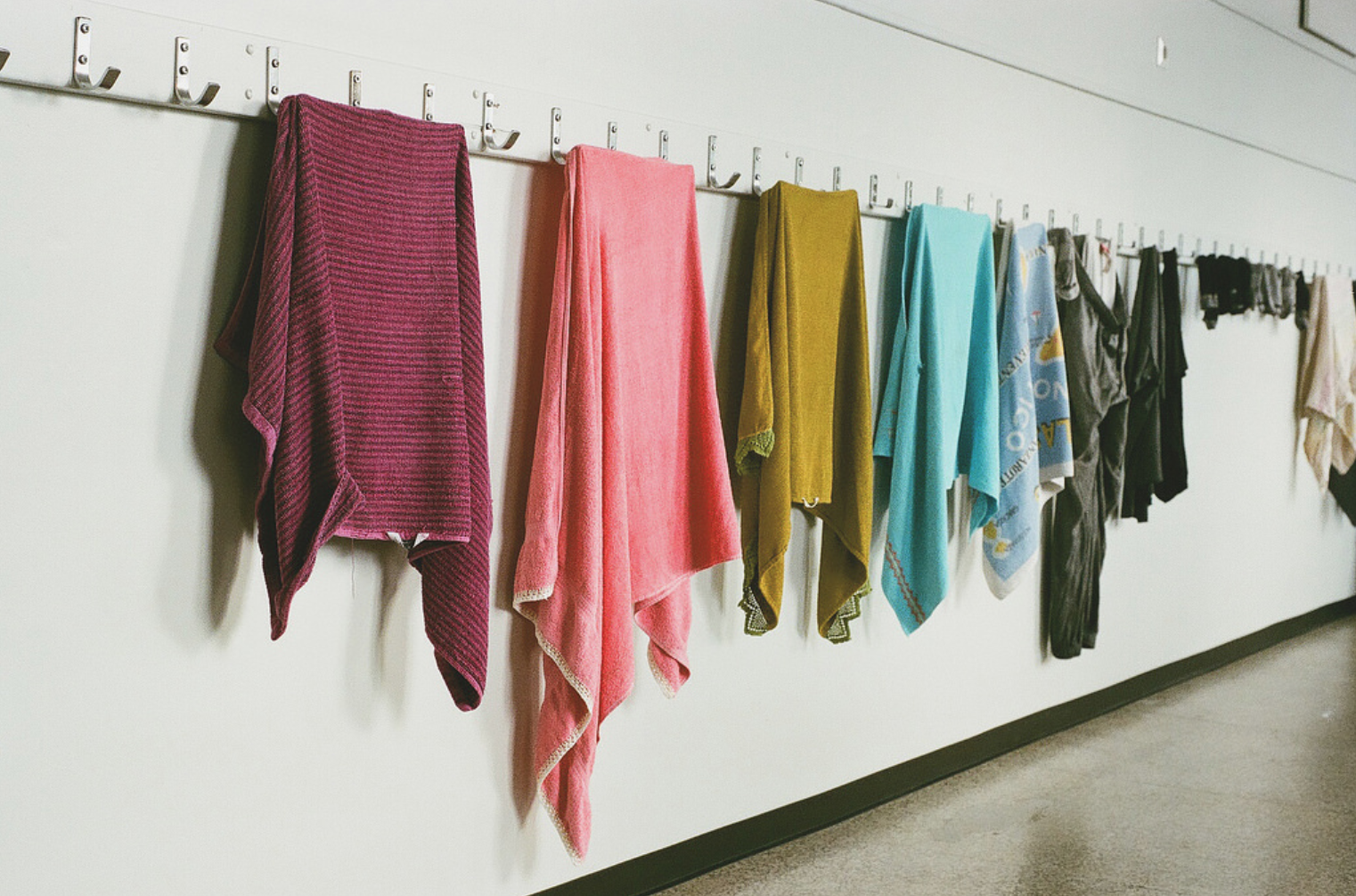
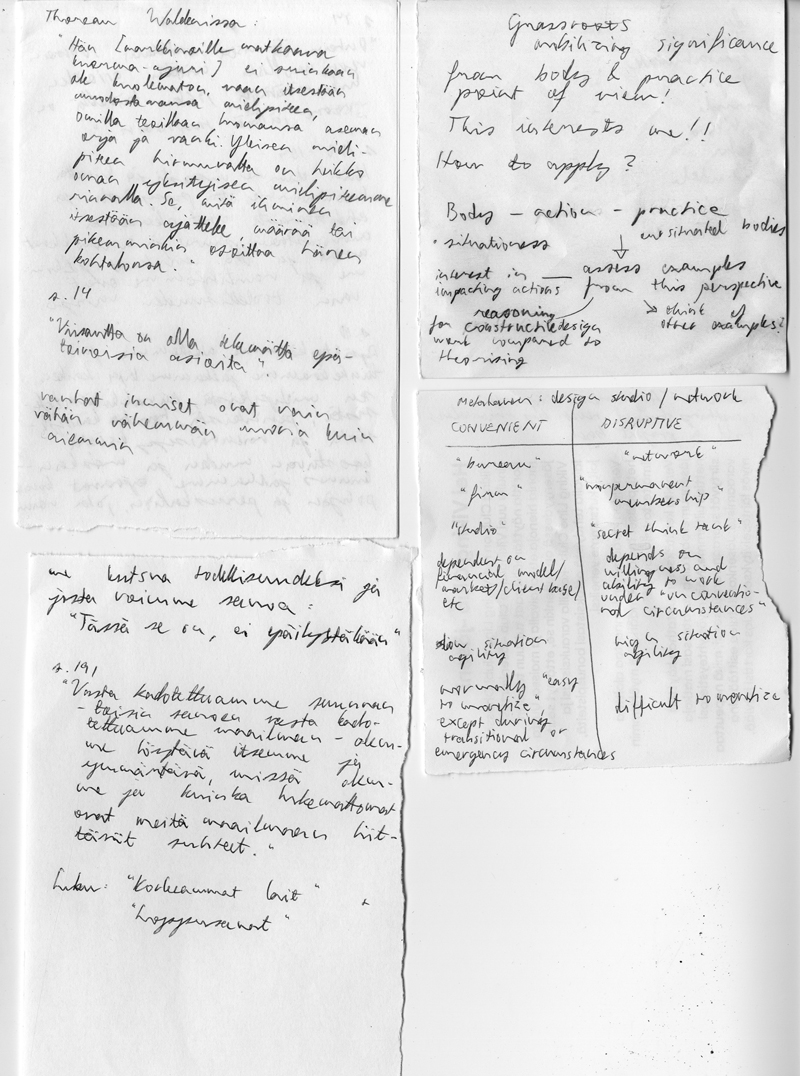
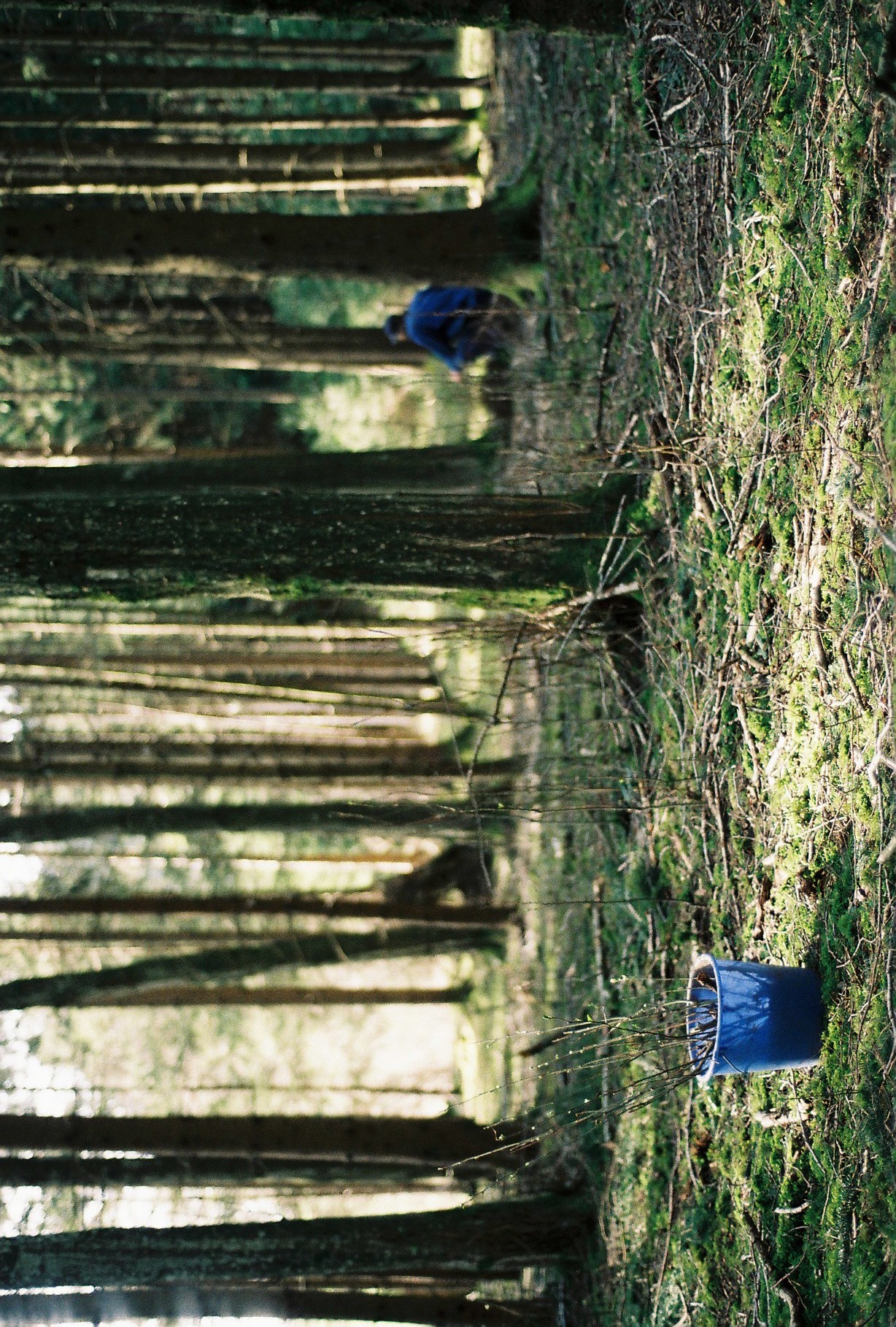
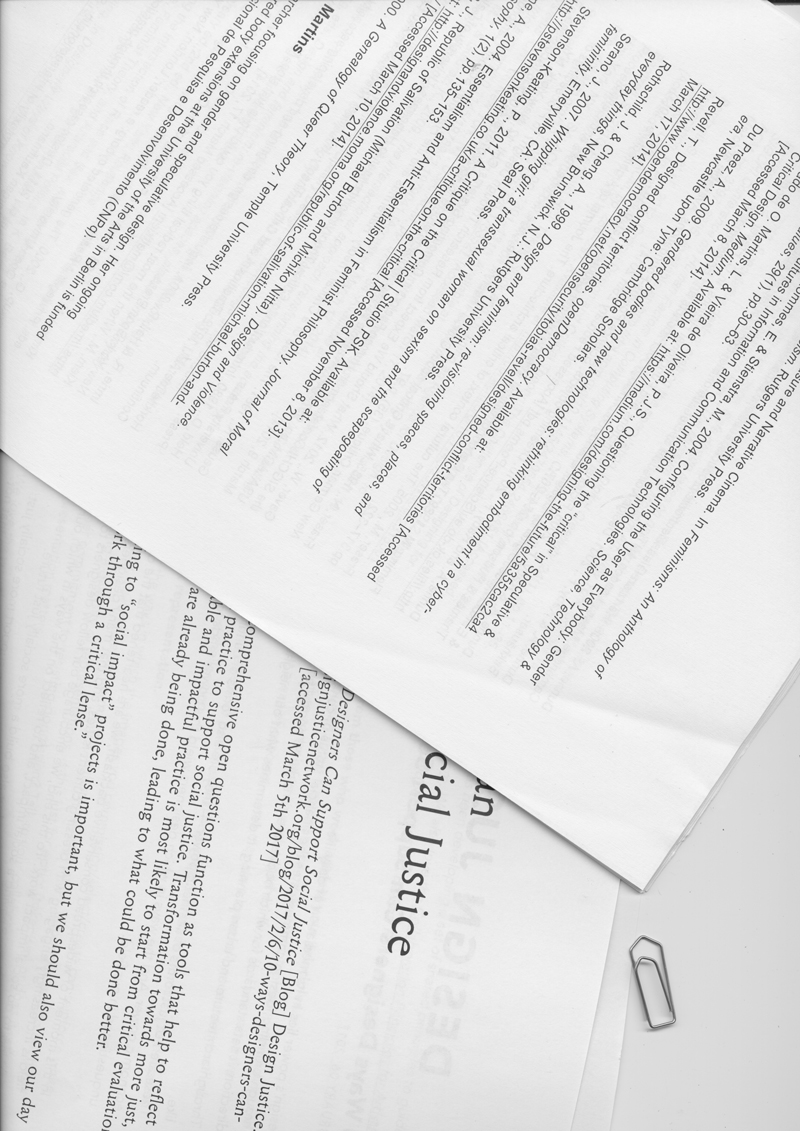
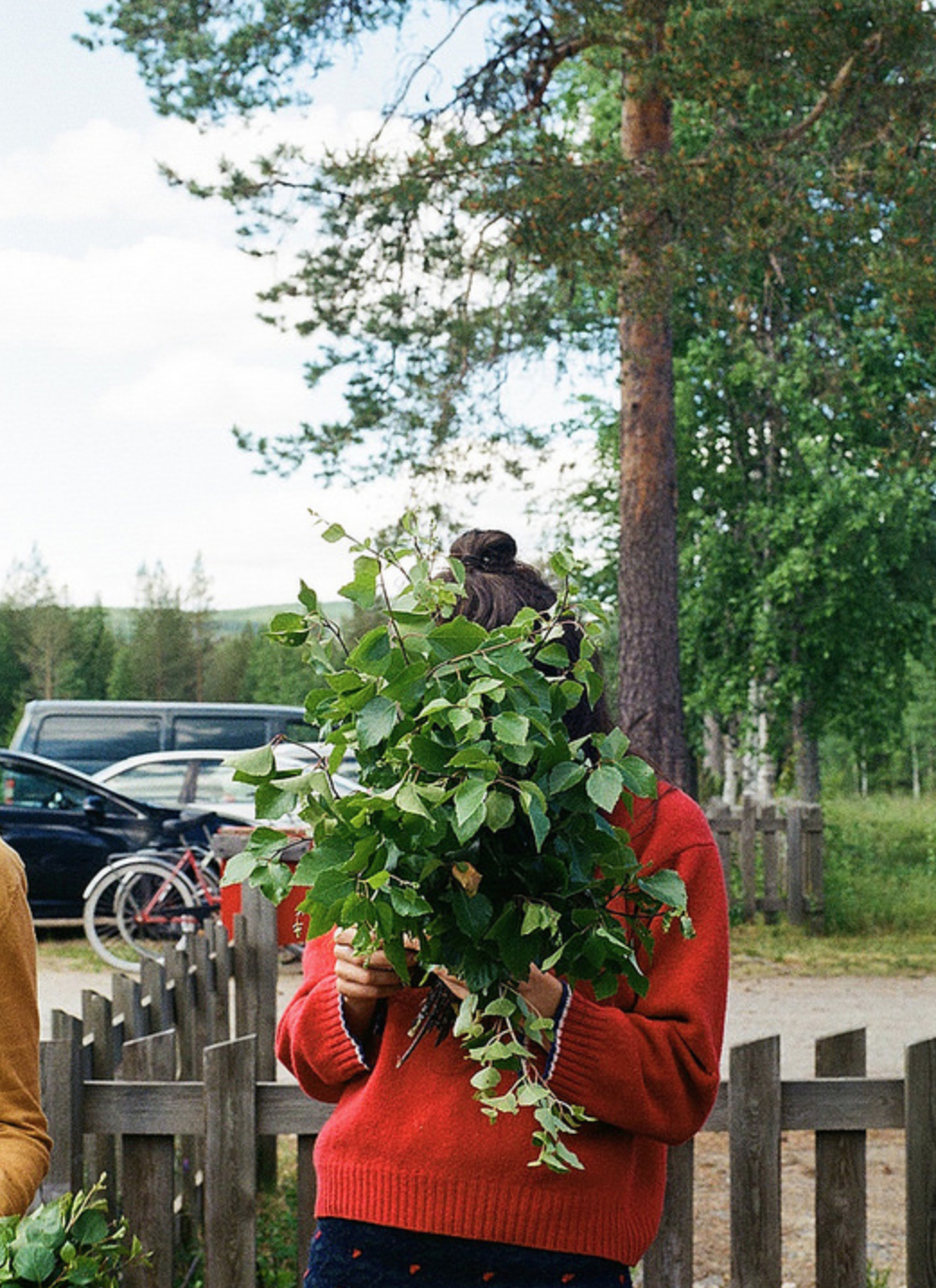
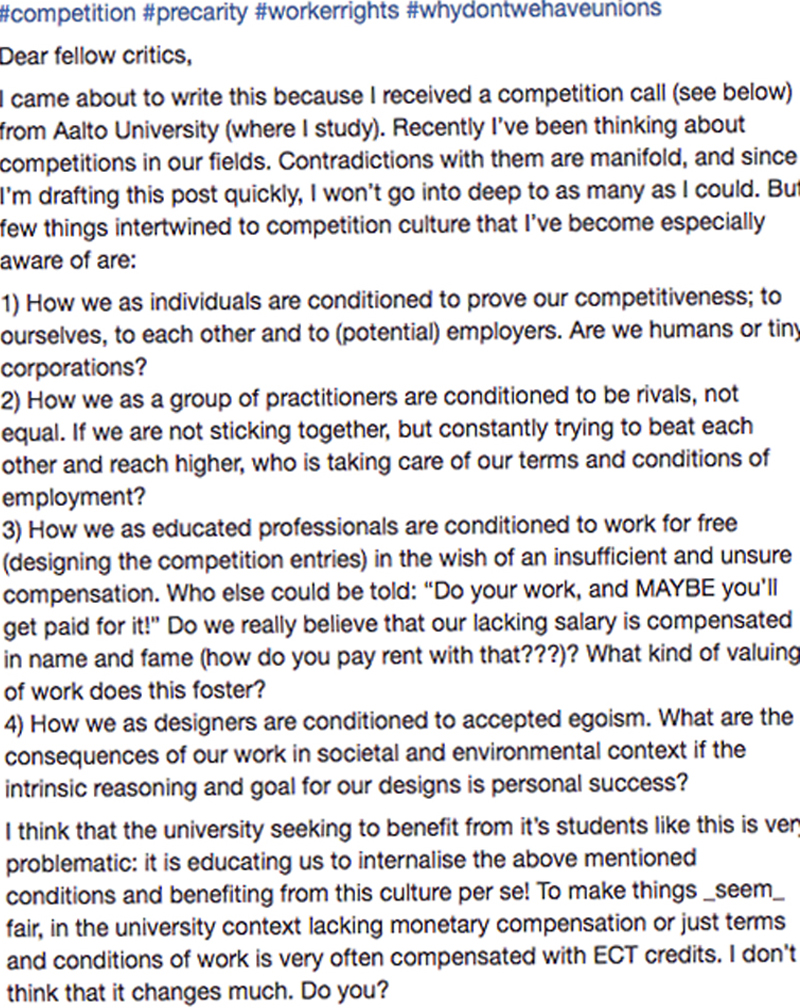
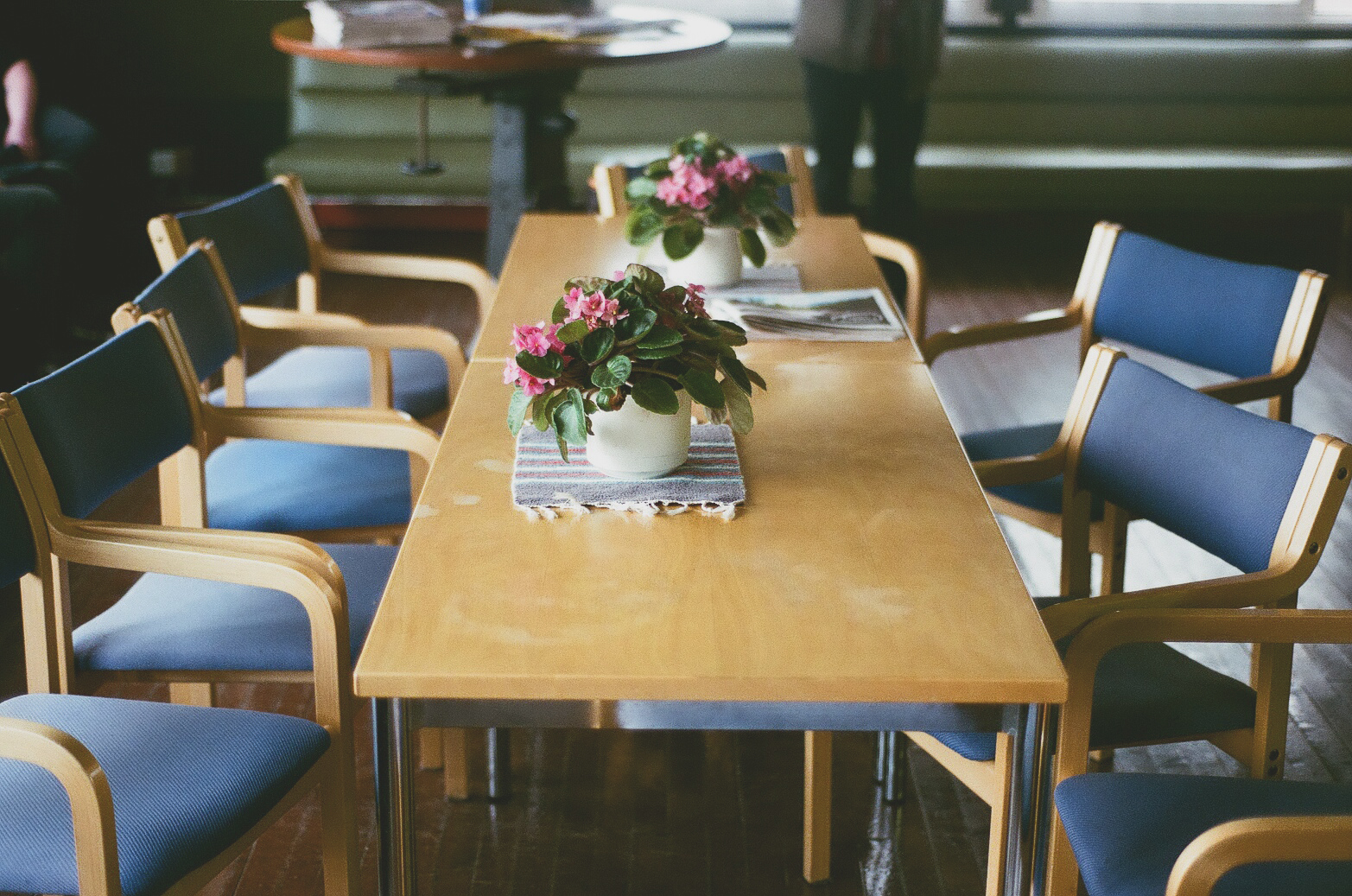
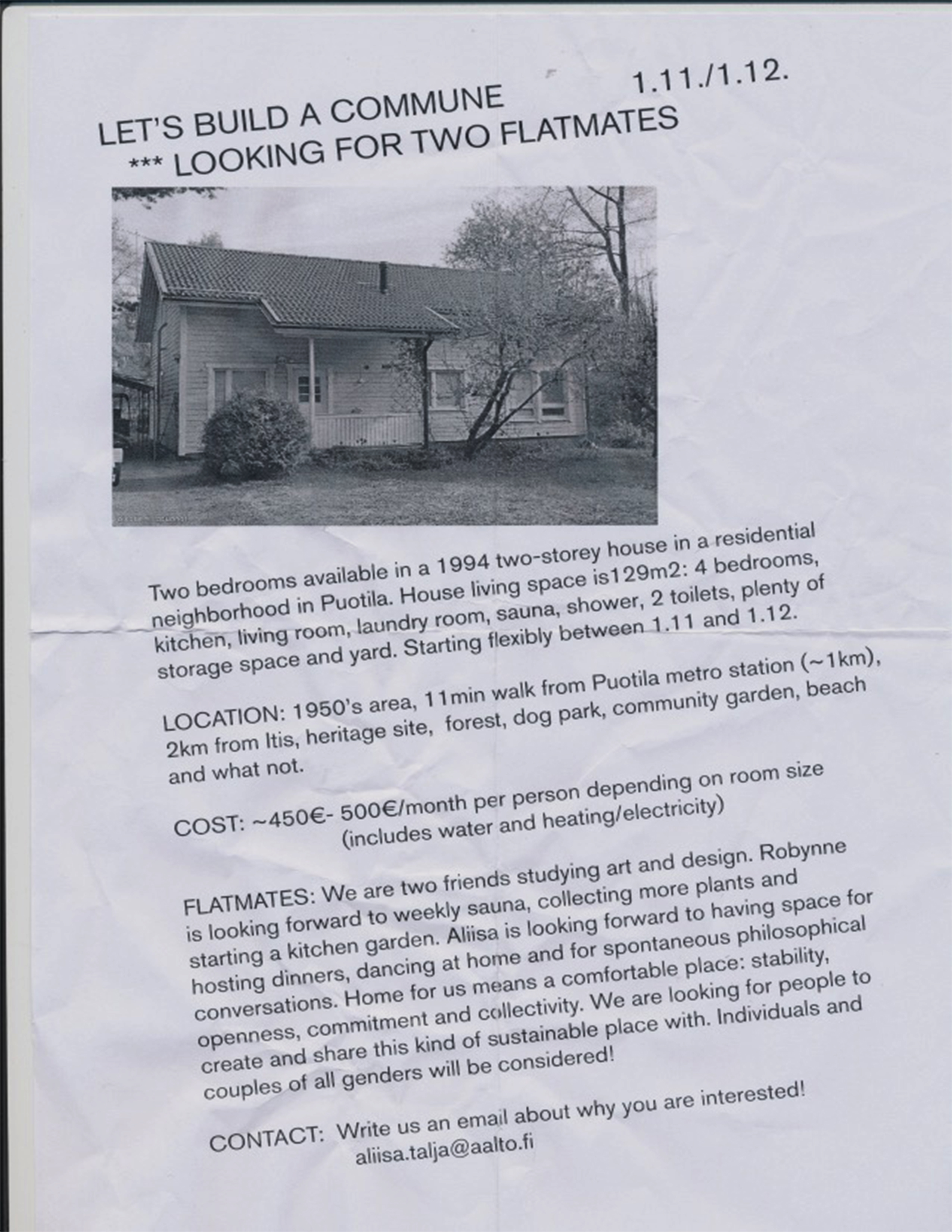
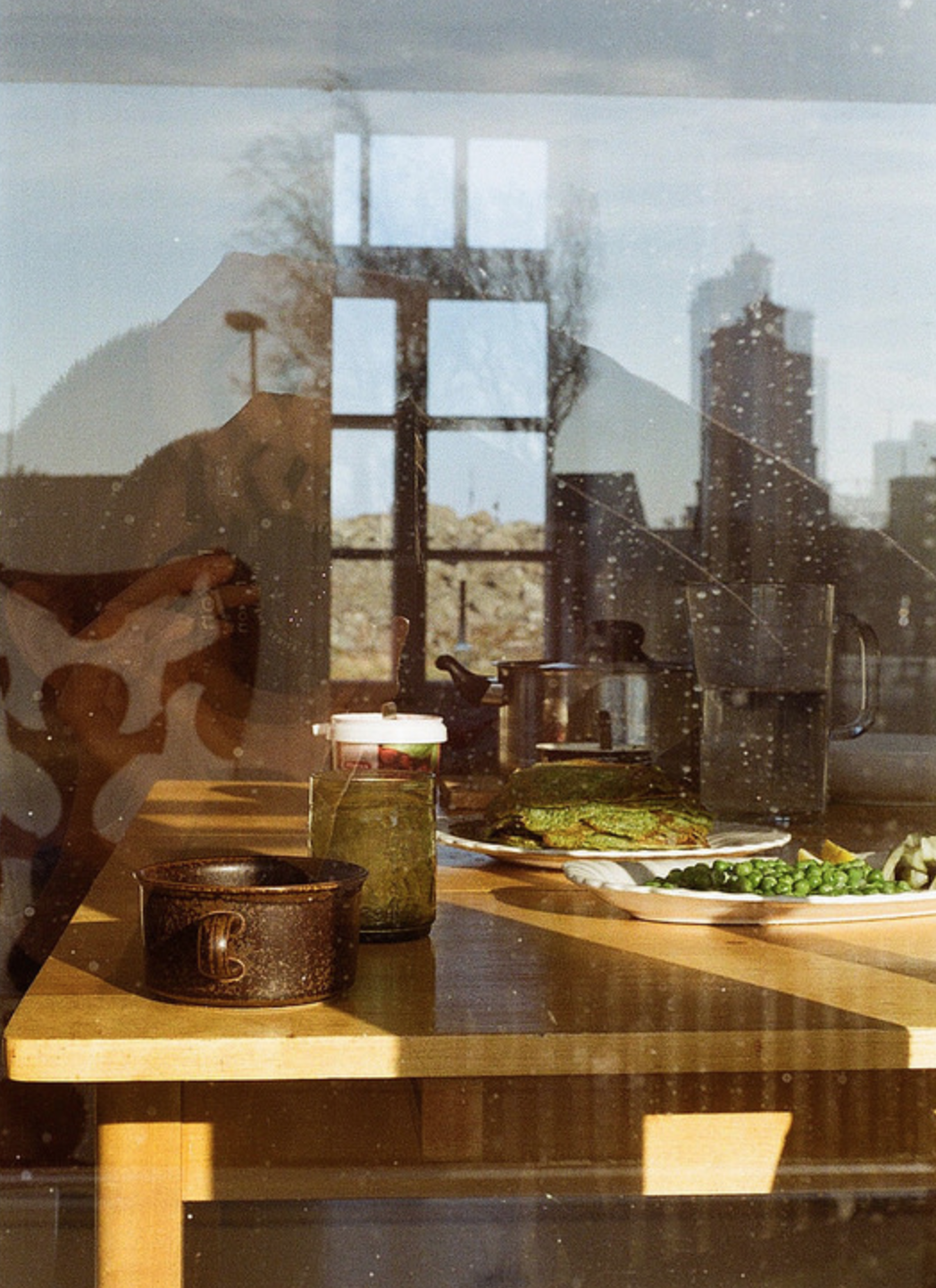
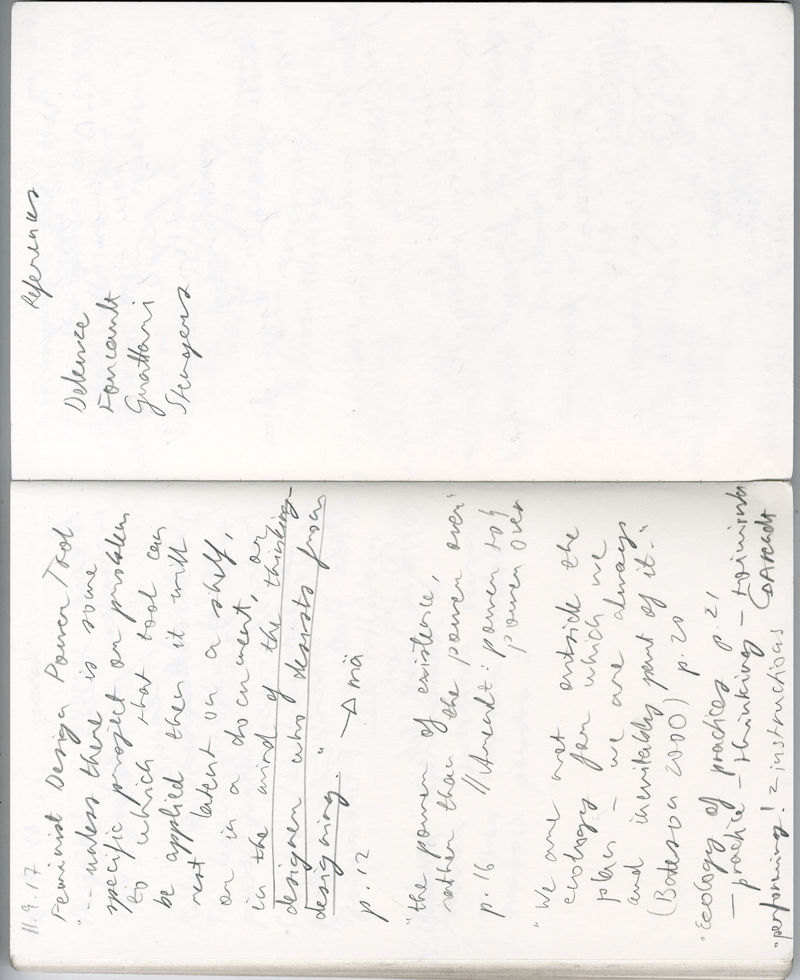
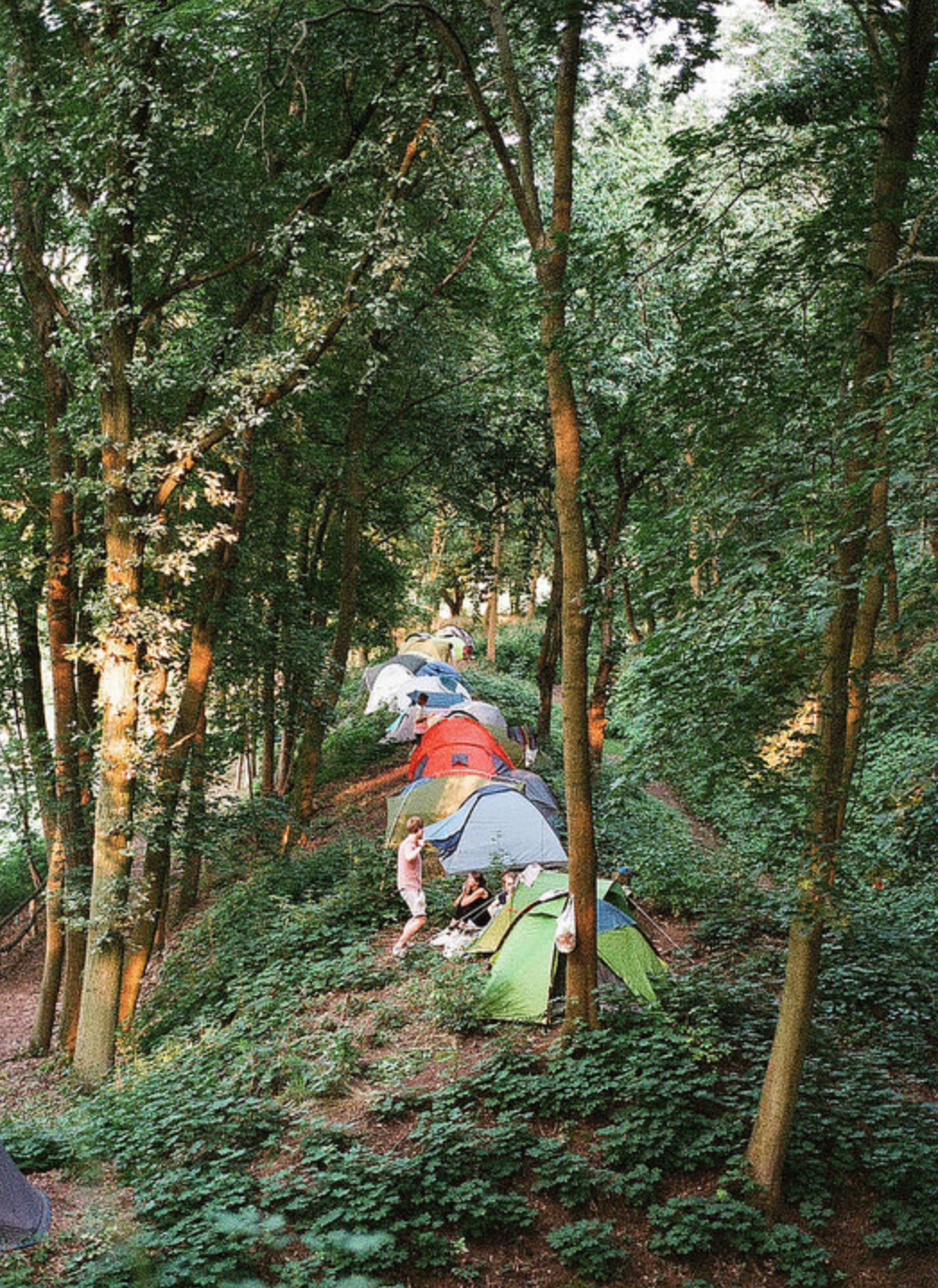
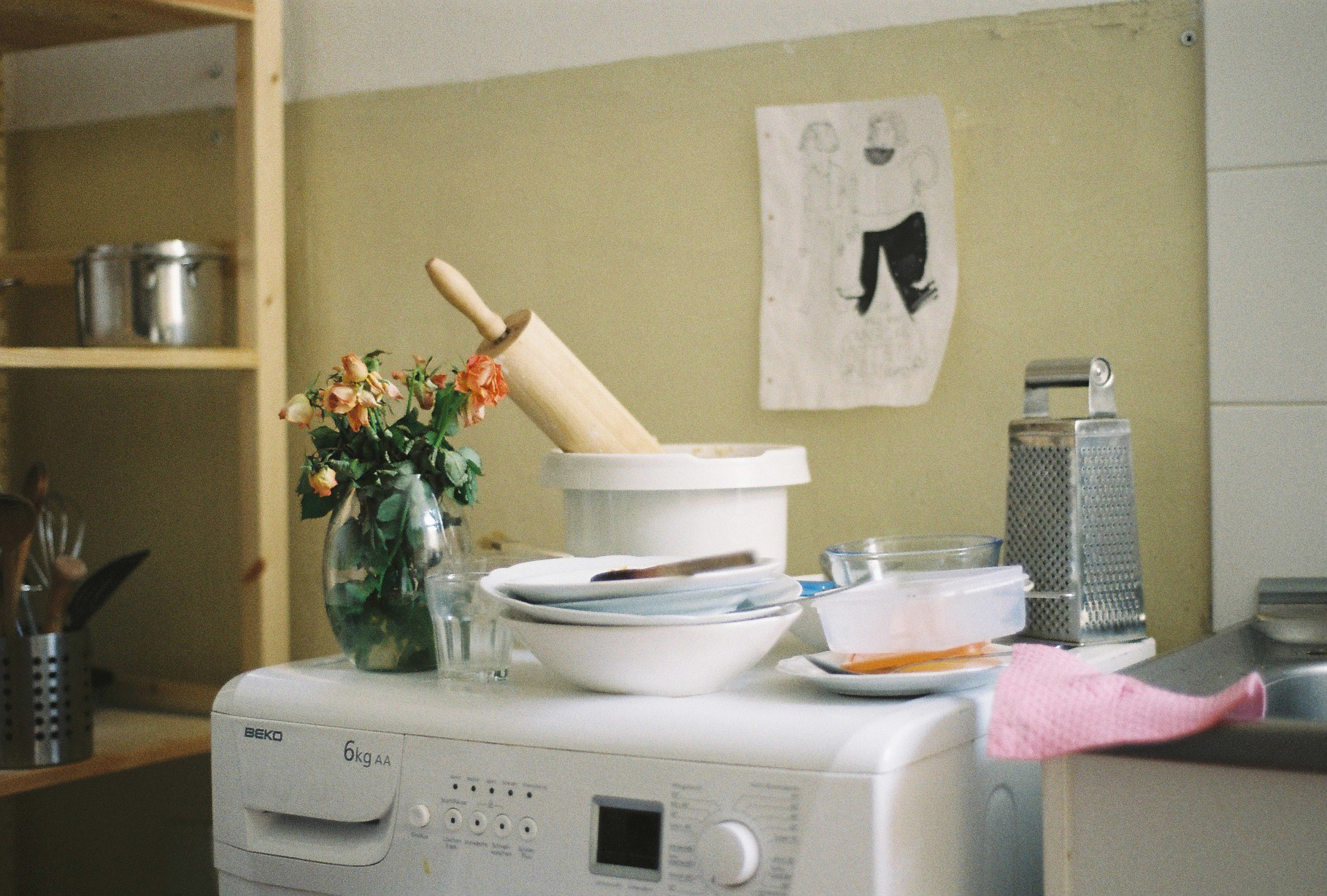
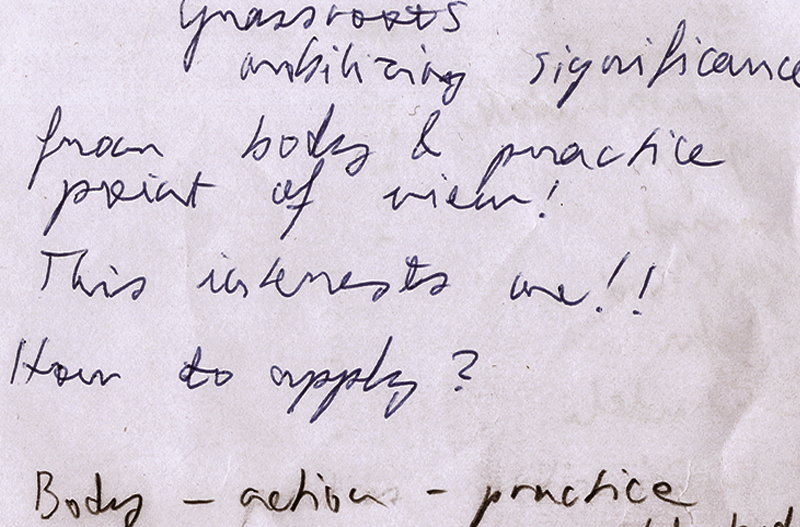

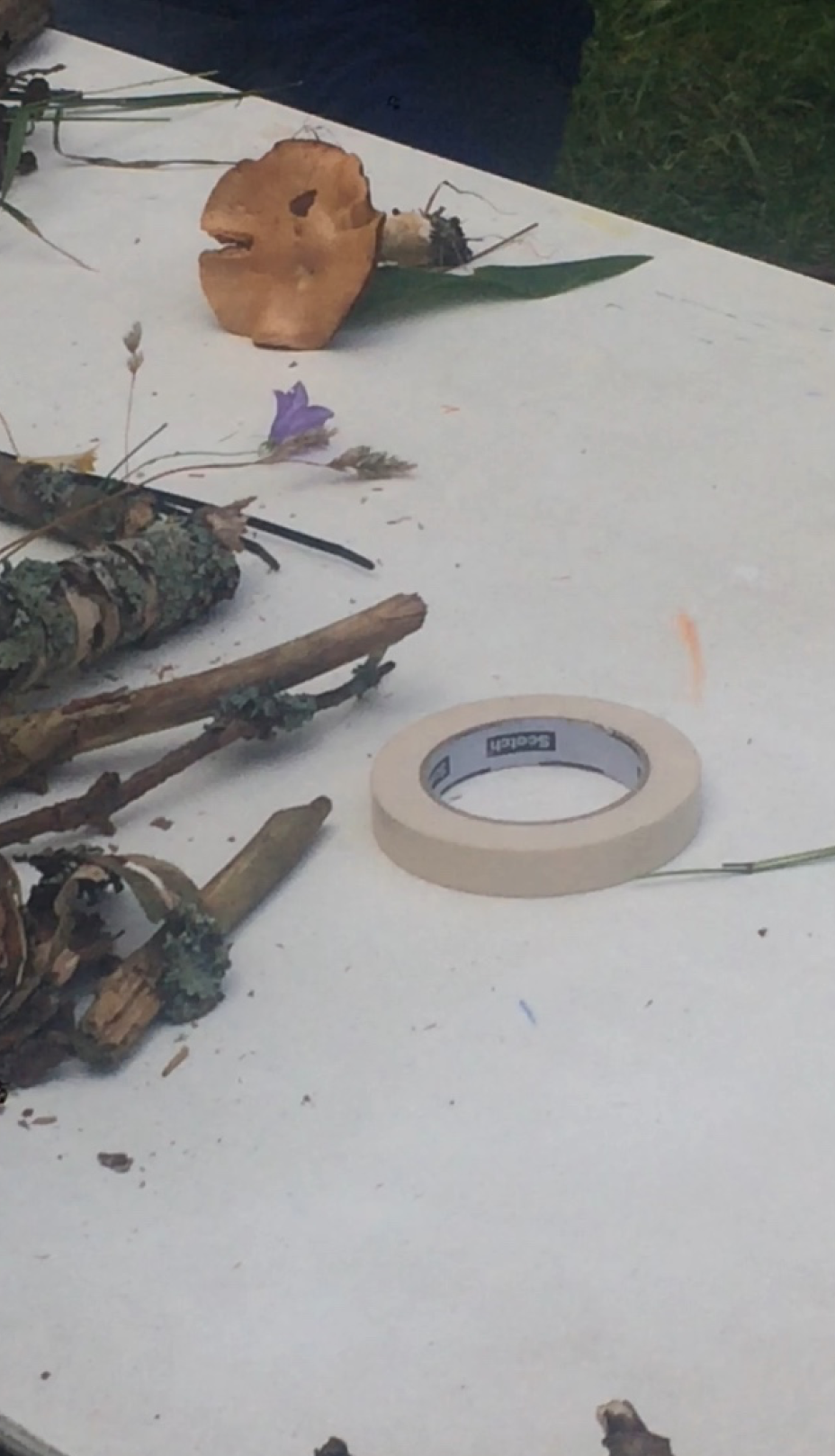
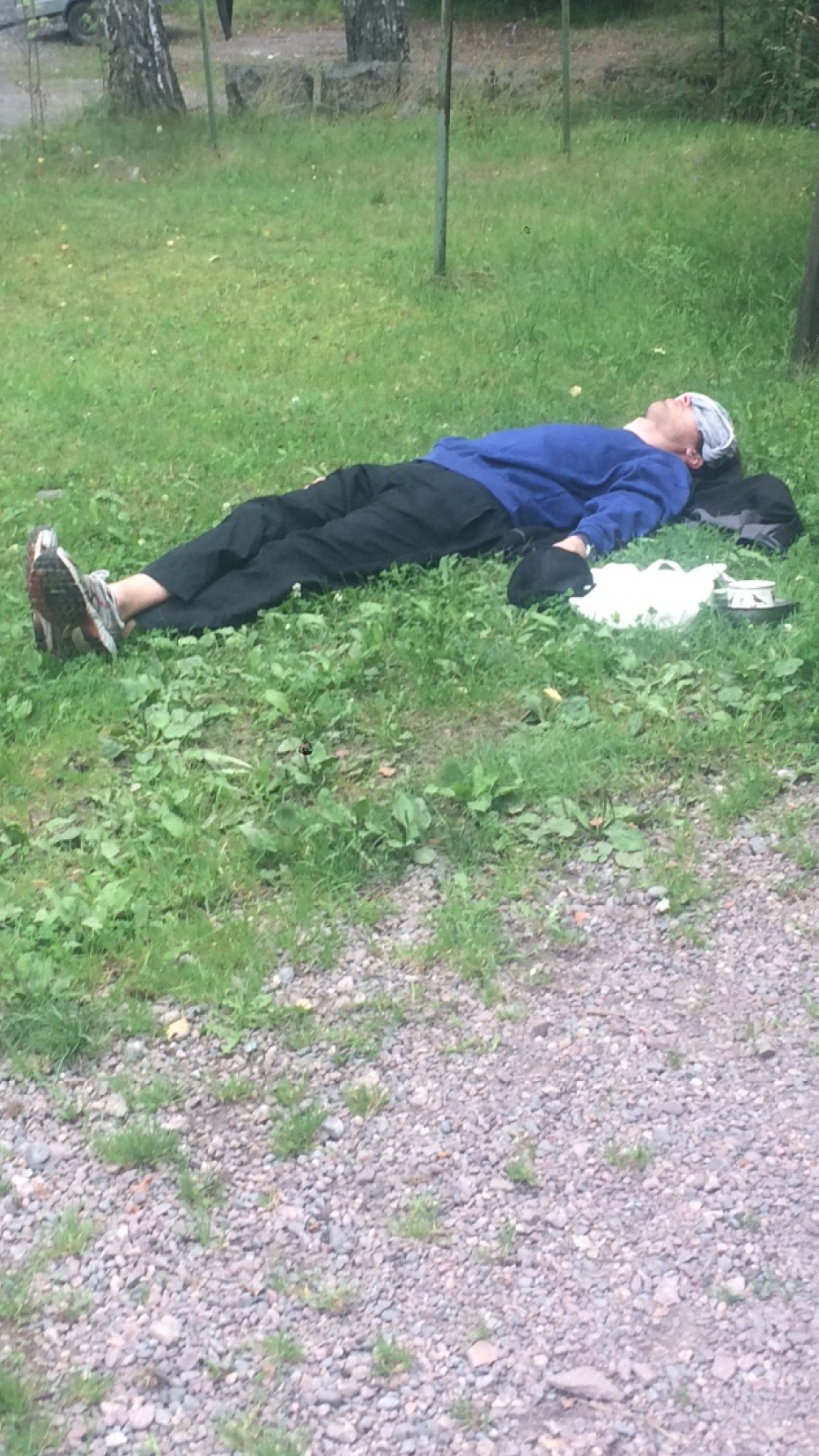
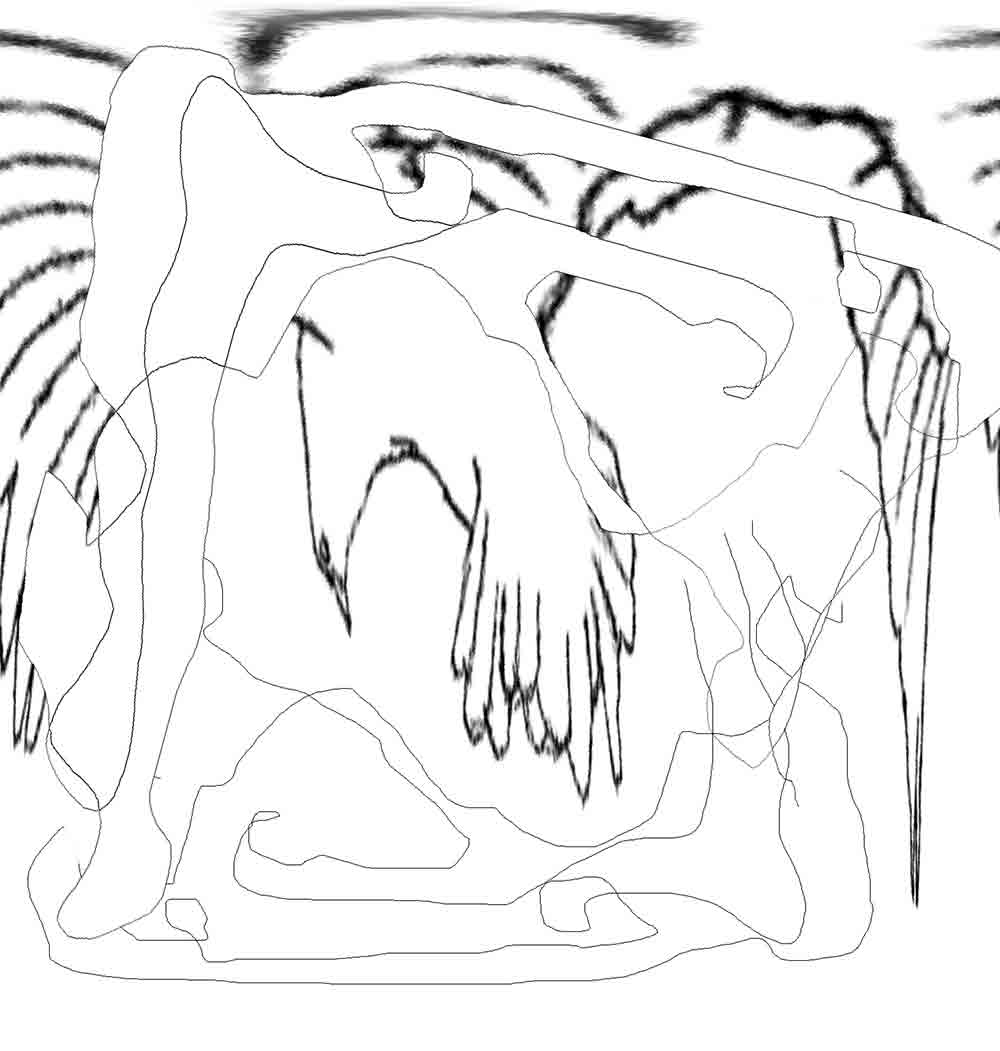
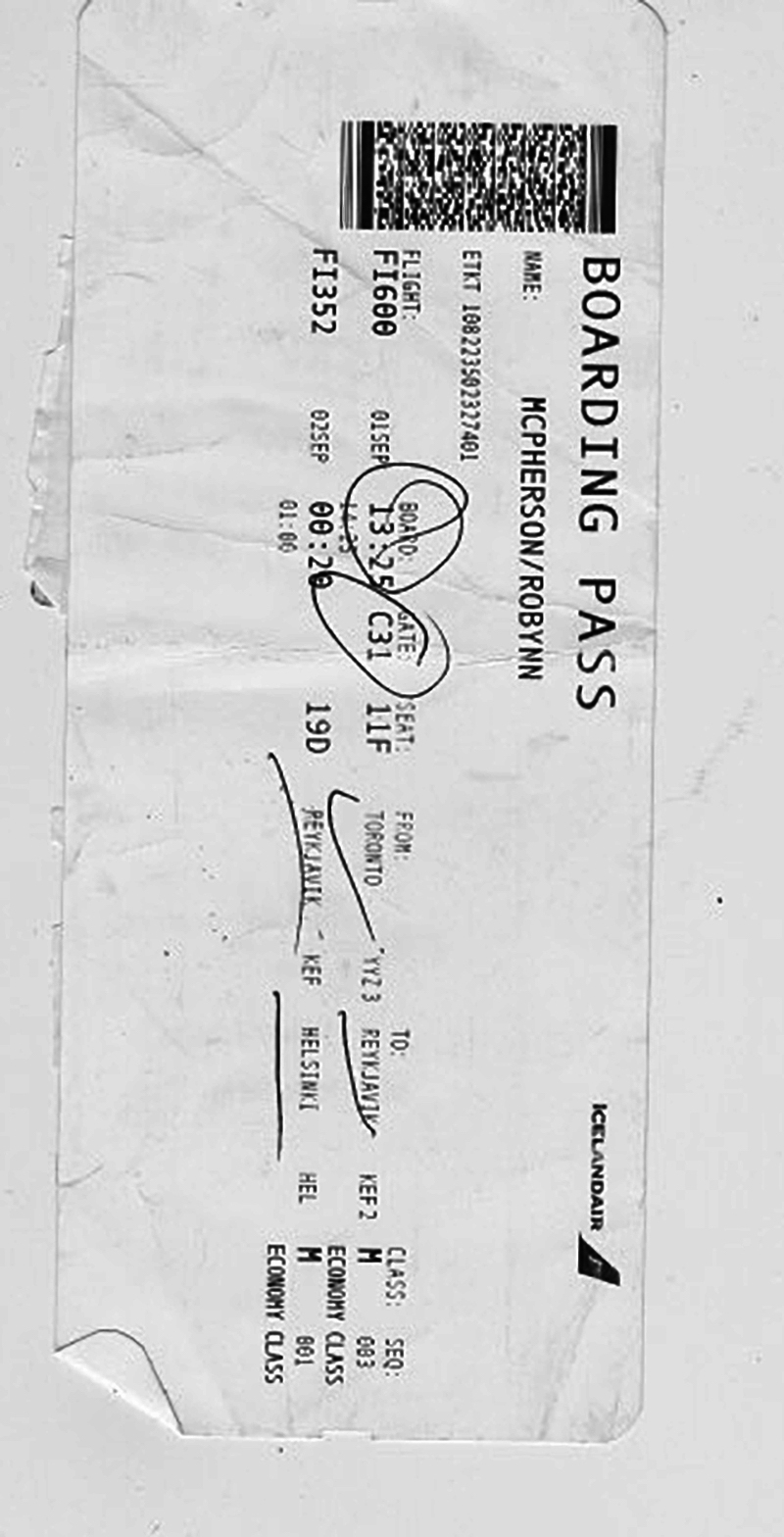
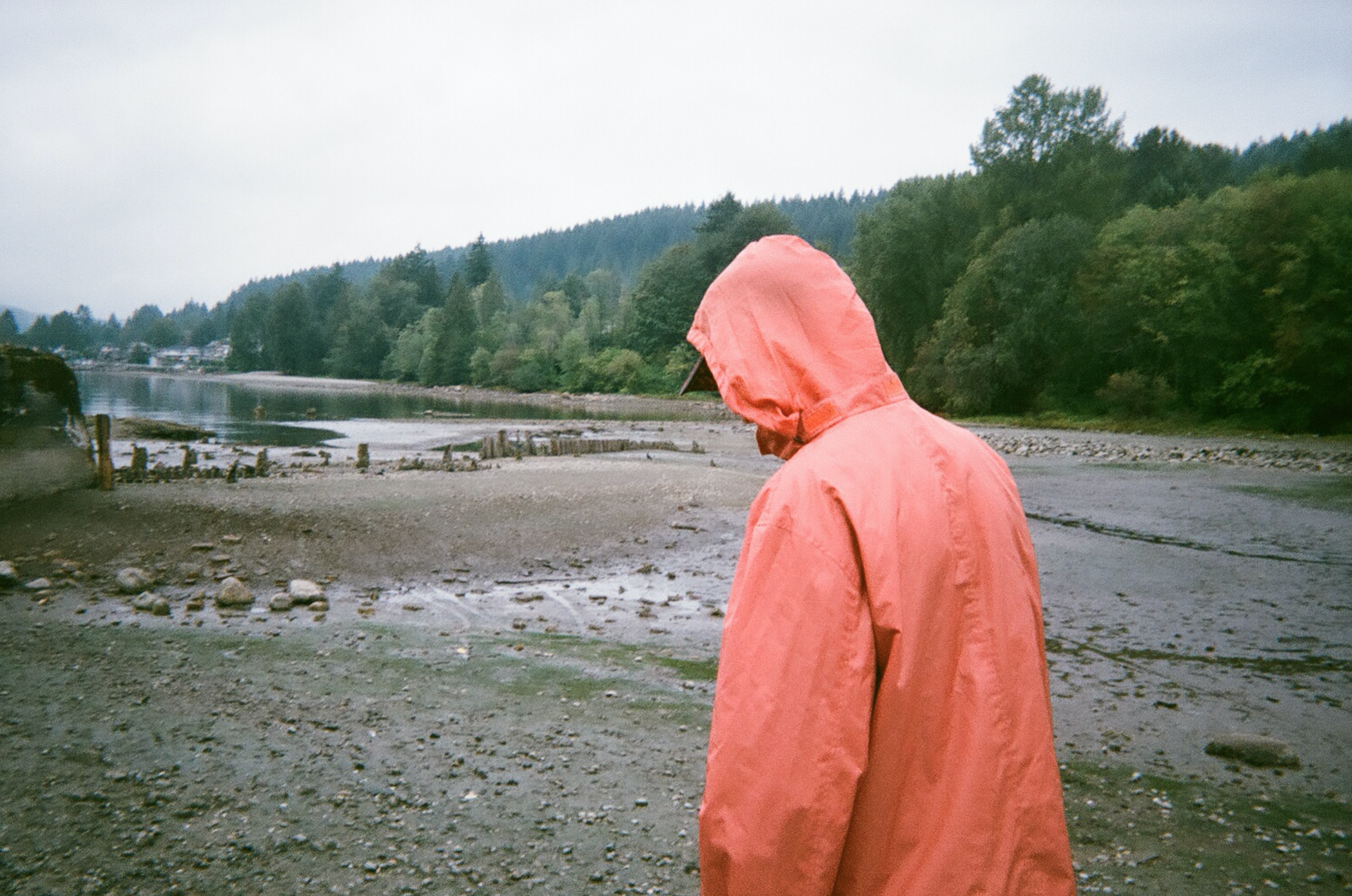
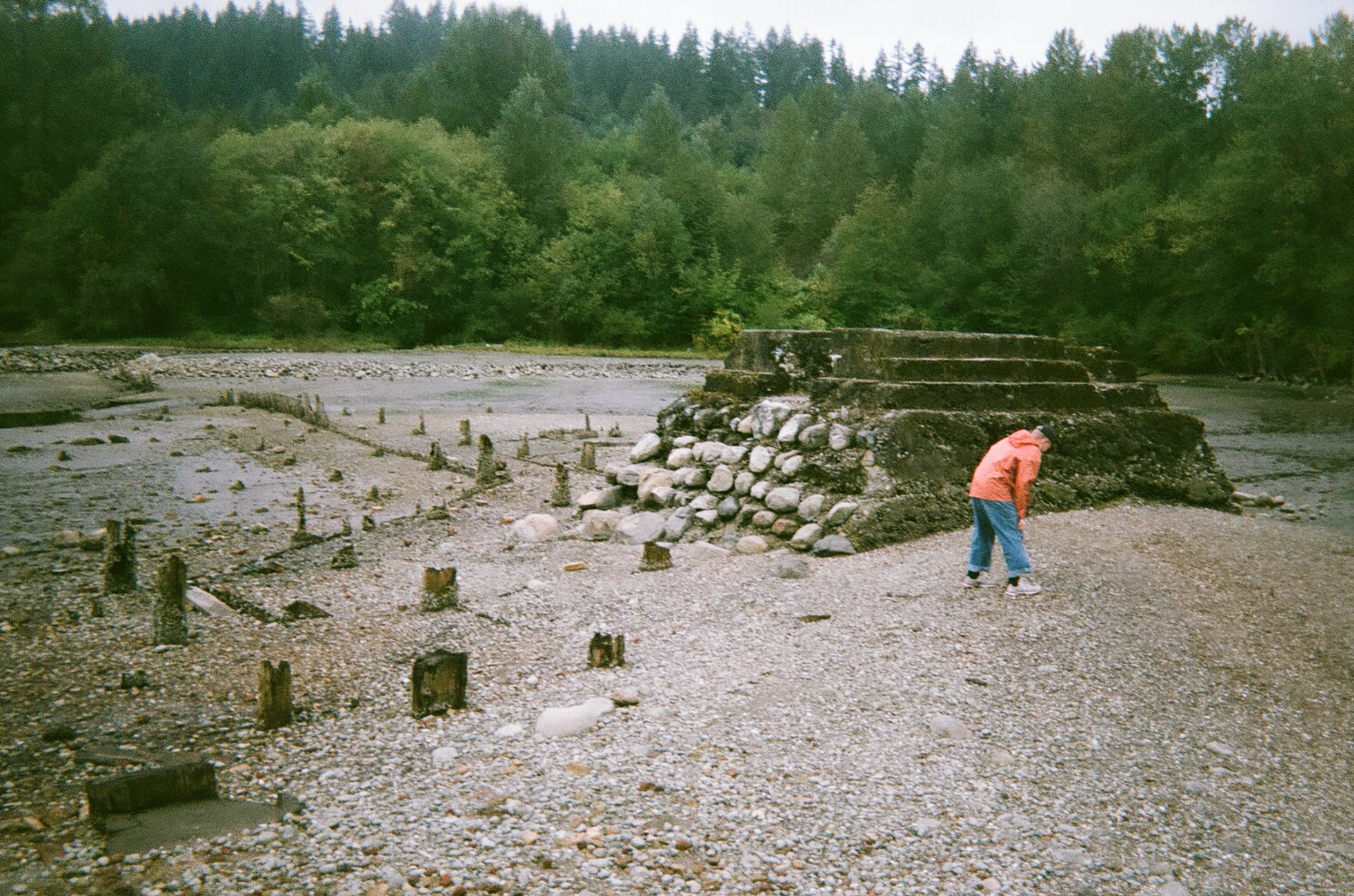
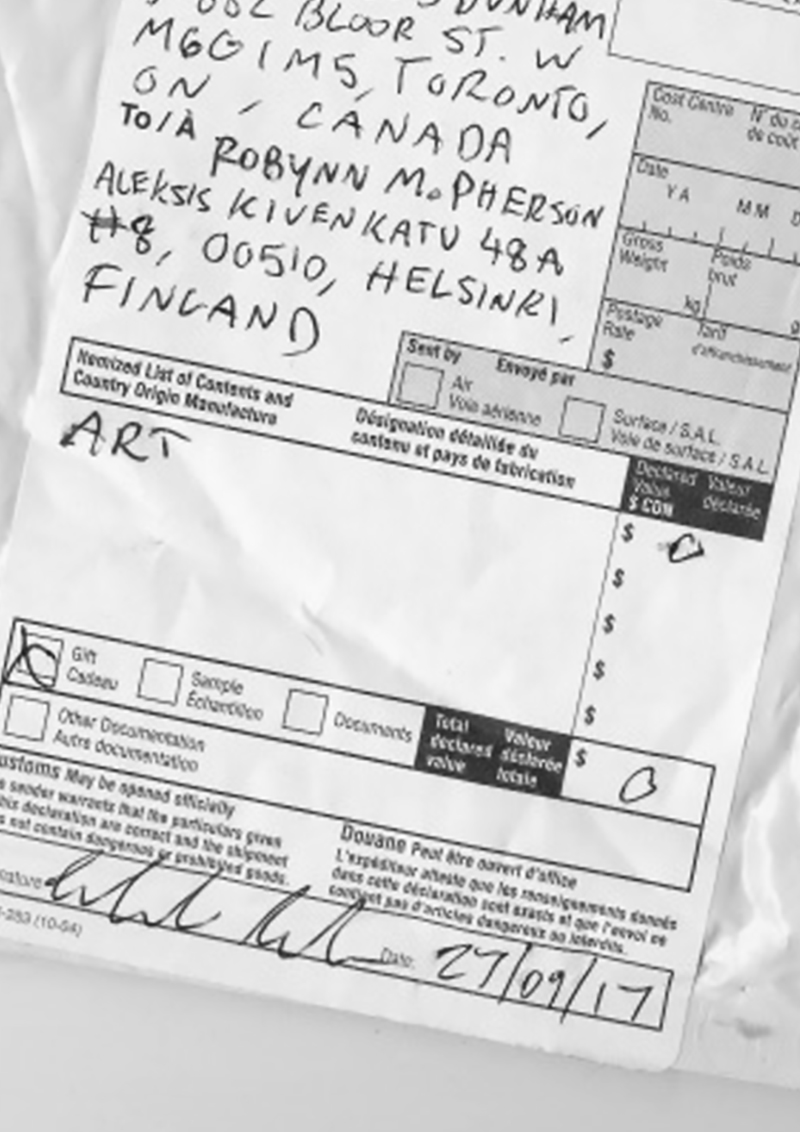

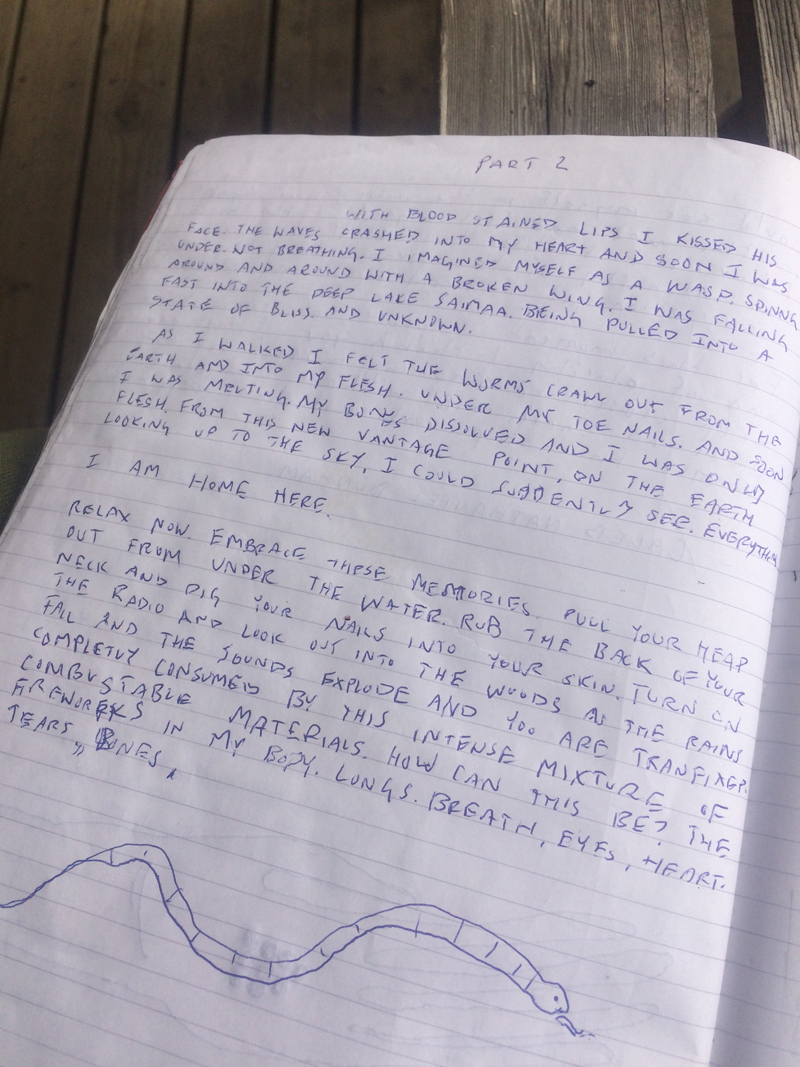
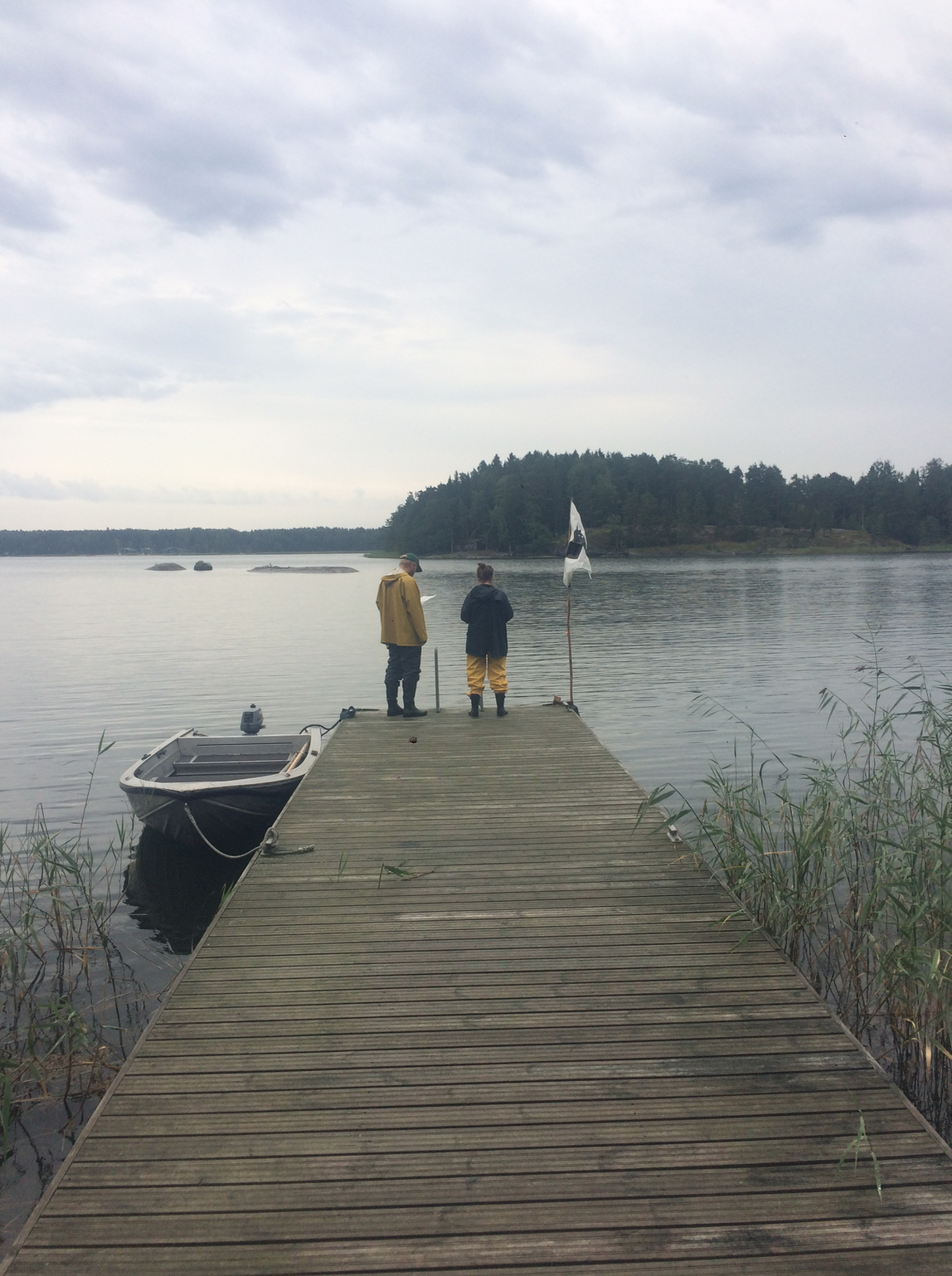

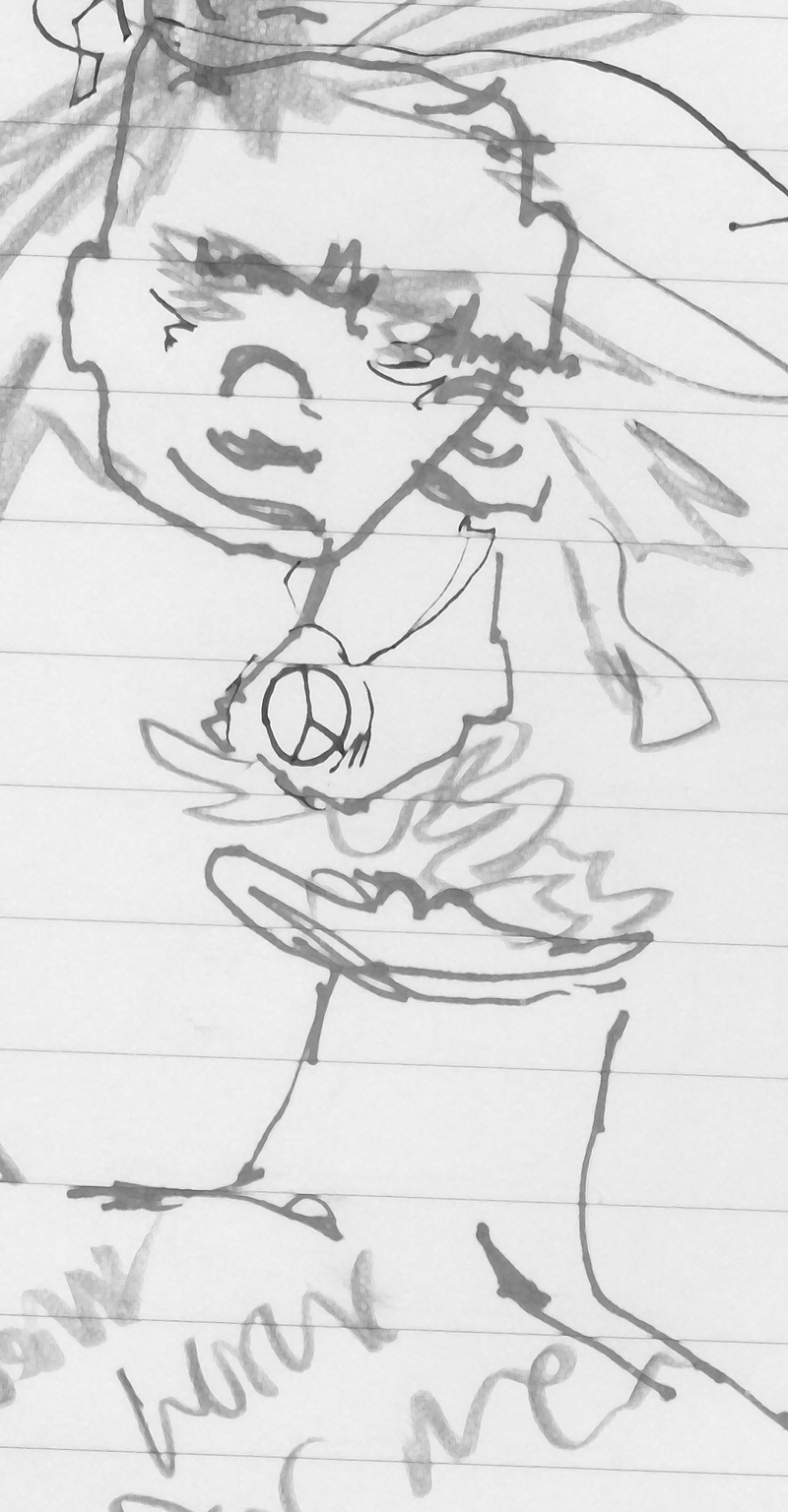
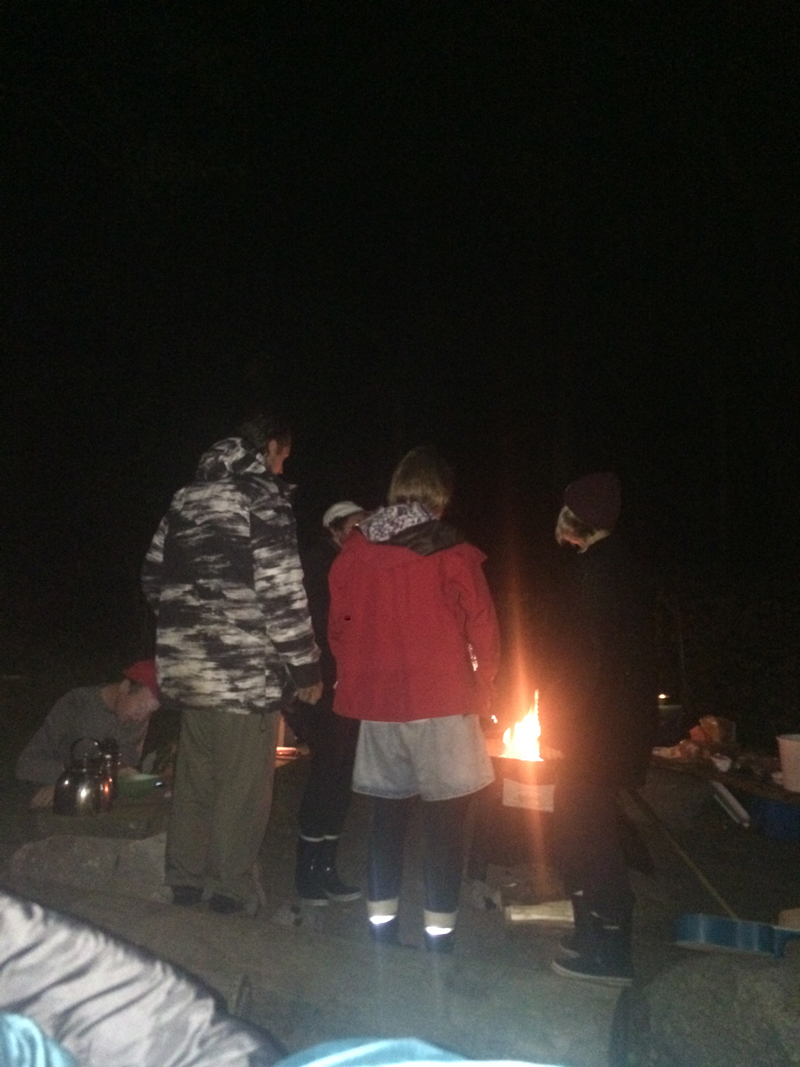
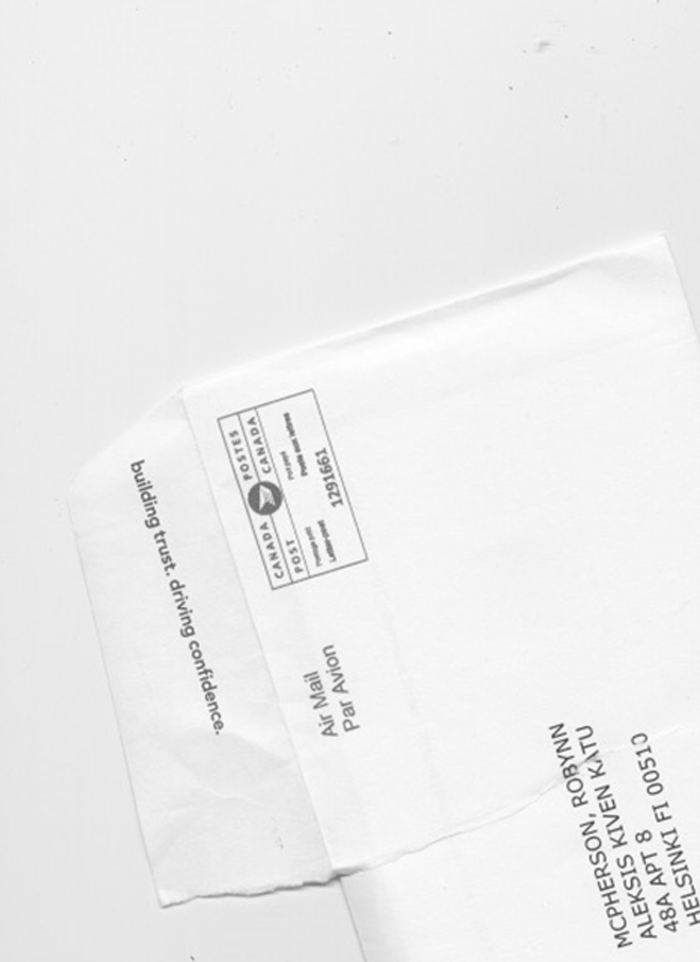
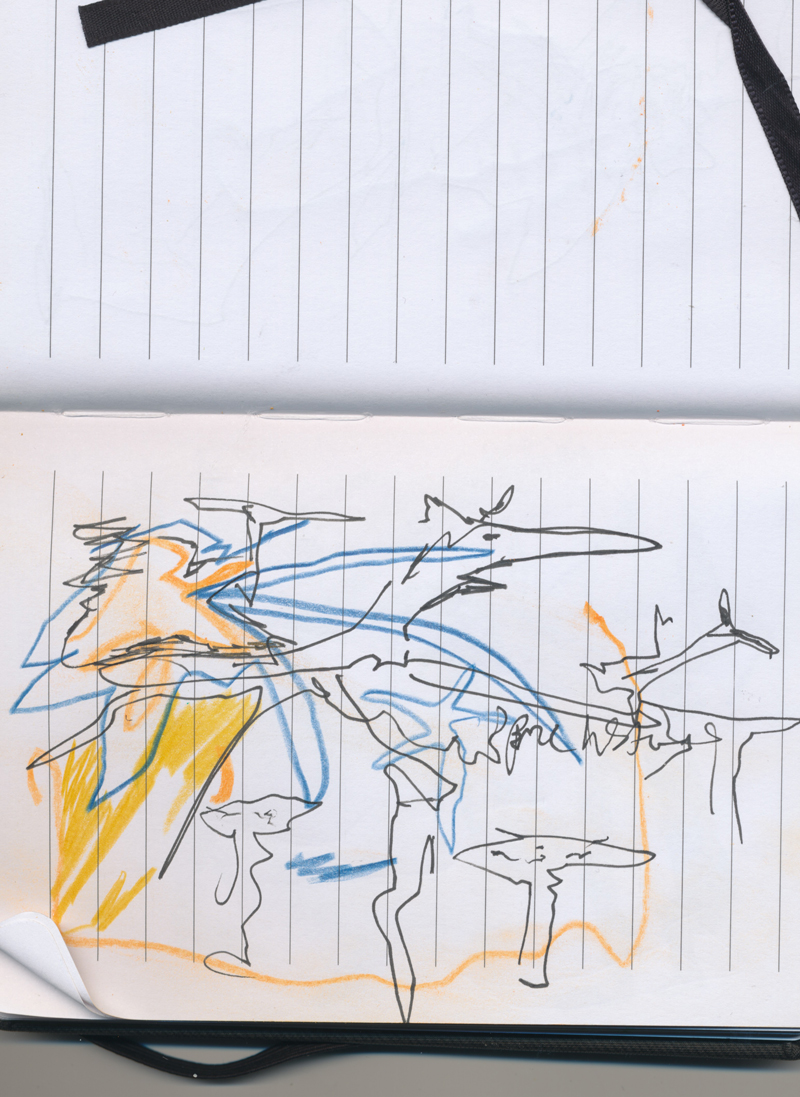
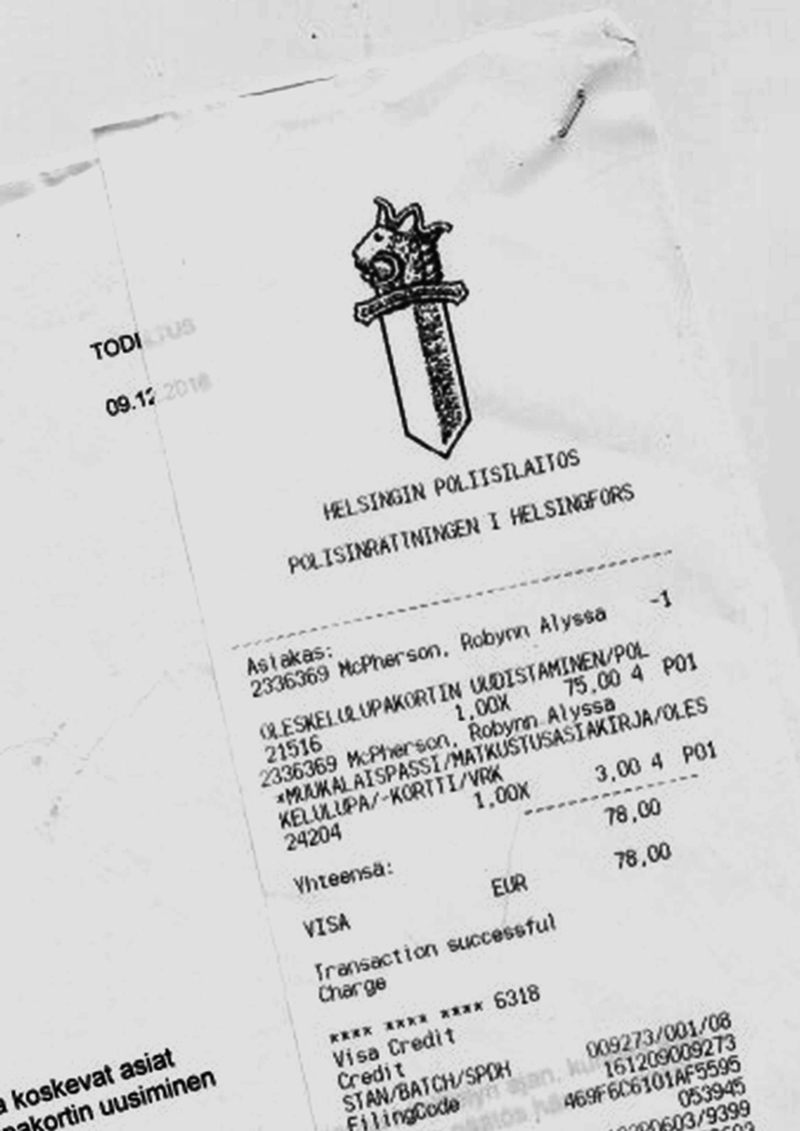
Introducing Absence: Why do we do what we do when we don’t do?
(Alex Ball, Alina Belishkina, Aliisa Talja, Kiia Beilinson, Lotta Esko, Mahnaz Khanpour Motazedi, Noura Salem, Robynn McPherson)We propose an outcome that cannot operate within the given framework of the A_Pocket competition. We consider our entry as our lever to shift the framework of the competition onto another track. We are creating a proposal instead of a proposition; an idea to consider and discuss rather than a plan to be implemented. This proposal is made because we refuse to take part in a design competition for reasons we will address. We propose to open the door – for confrontation, for discussion, for acknowledgement, for access, for transparency.
Why? Because we as the citizens of “Aalto City” see many problems with its current track of development: We do not wish for a future where competition is the preferred way of initiating change. We do not wish a monument by and of a single personality, but rather a space for the community, by the community. We do not wish to be addressed where we are allowed to gather – we should be free to interact, exchange, discuss and meet anywhere, by choice. We do not find value in branding our streets and common spaces. We can not work for credit - credit doesn’t pay our bills. We can not ignore the present, and we don’t wish to wipe away history either.
For the reasons mentioned above, we do not want to support the competition but we do wish to open spatial decisions to all the inhabitants of this ‘city’. The A_Pocket design competition brief is forcing us to make an all-or-nothing decision: if we want to have a say in the development of our city, we have to compete. We refuse to make a choice between competing and no agency at all. Instead we establish a third choice—an open door, on our own terms. We are doing this because we are genuinely interested in the future of our ‘city’.
By opening the door in the corner of what’s been branded A_pocket we aim to turn a fenced courtyard into a passageway. By making a miniscule material alteration we perform an essential conceptual move: a closed pocket is transformed into an interstitial space open for negotiation. This transformation allows the space to be freely activated by, and according to the needs of the citizens of this ‘city’. By opening the door we are interfering with the regulation of movements and allowing a new unforeseeable path to be formed. This act of leaving things unmade doesn’t correlate with emptiness. Quite the contrary, it opens a space for civic activity and expression of agency.
In the development of common futures there should not be monetary prizes for individuals to win. On the other hand, the work commissioned to Aalto students deserves a fair compensation. This competition meets neither of these viewpoints. Furthermore, the use of funds allocated for ‘building our city’ should be open to discussion to everyone involved in the university. The allocation of university funding should be entirely transparent - a democracy where we have the right to determine and refuse the options and also the framework.
Therefore we are not making a proposition, but proposing to open a door.
-
This proposal ponders the action of doing nothing as a political stance against corporate mentality, capitalist hegemony, and governance.
